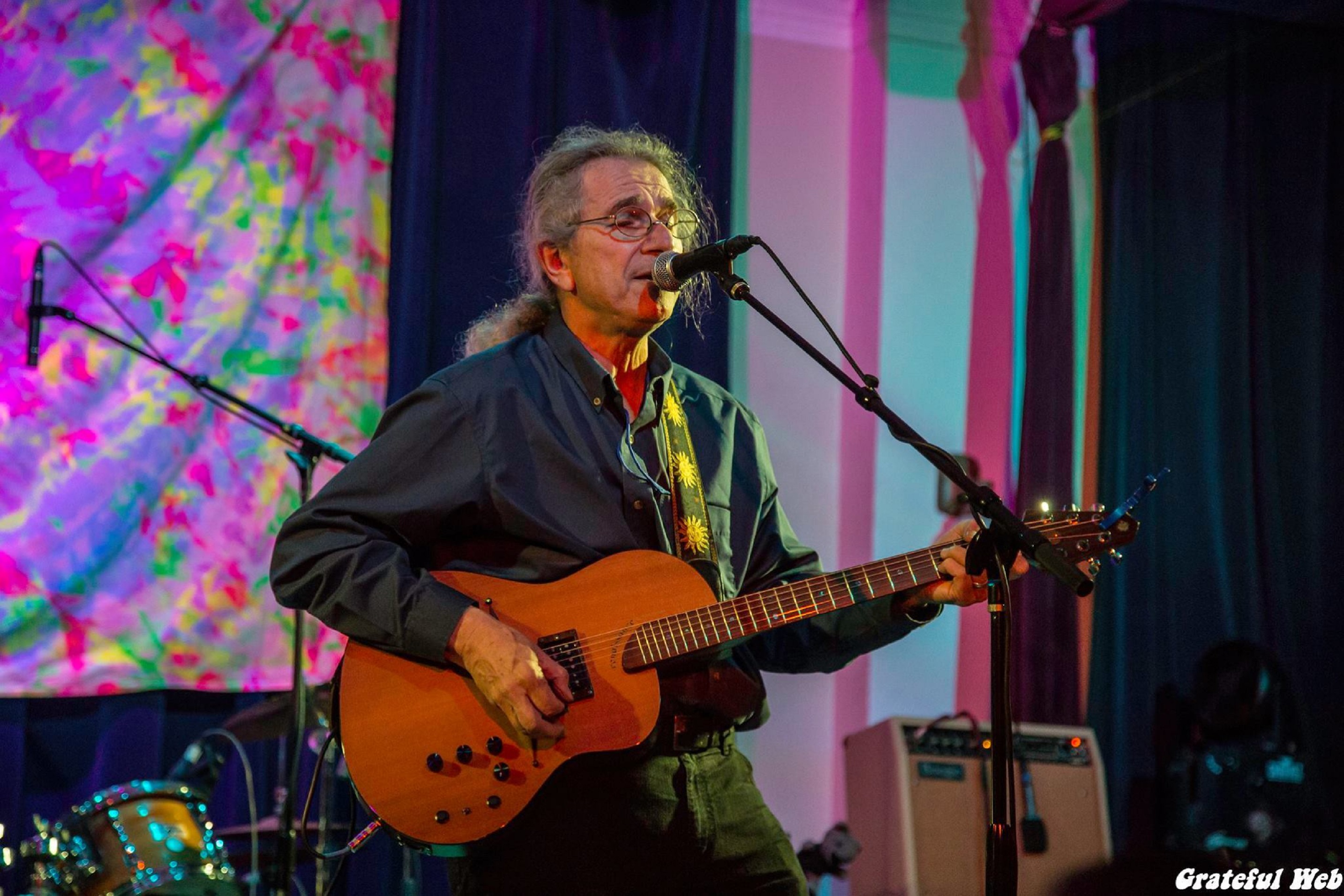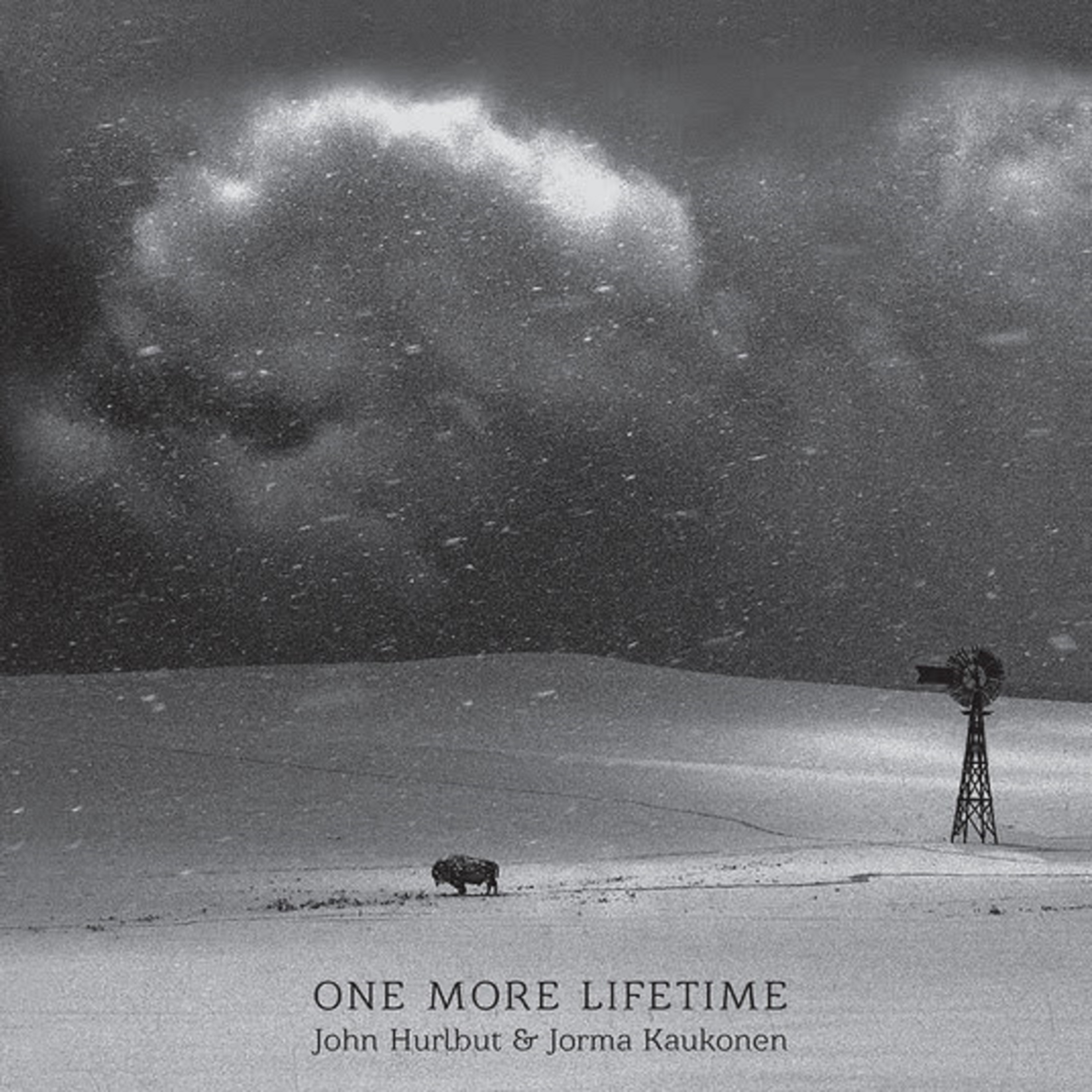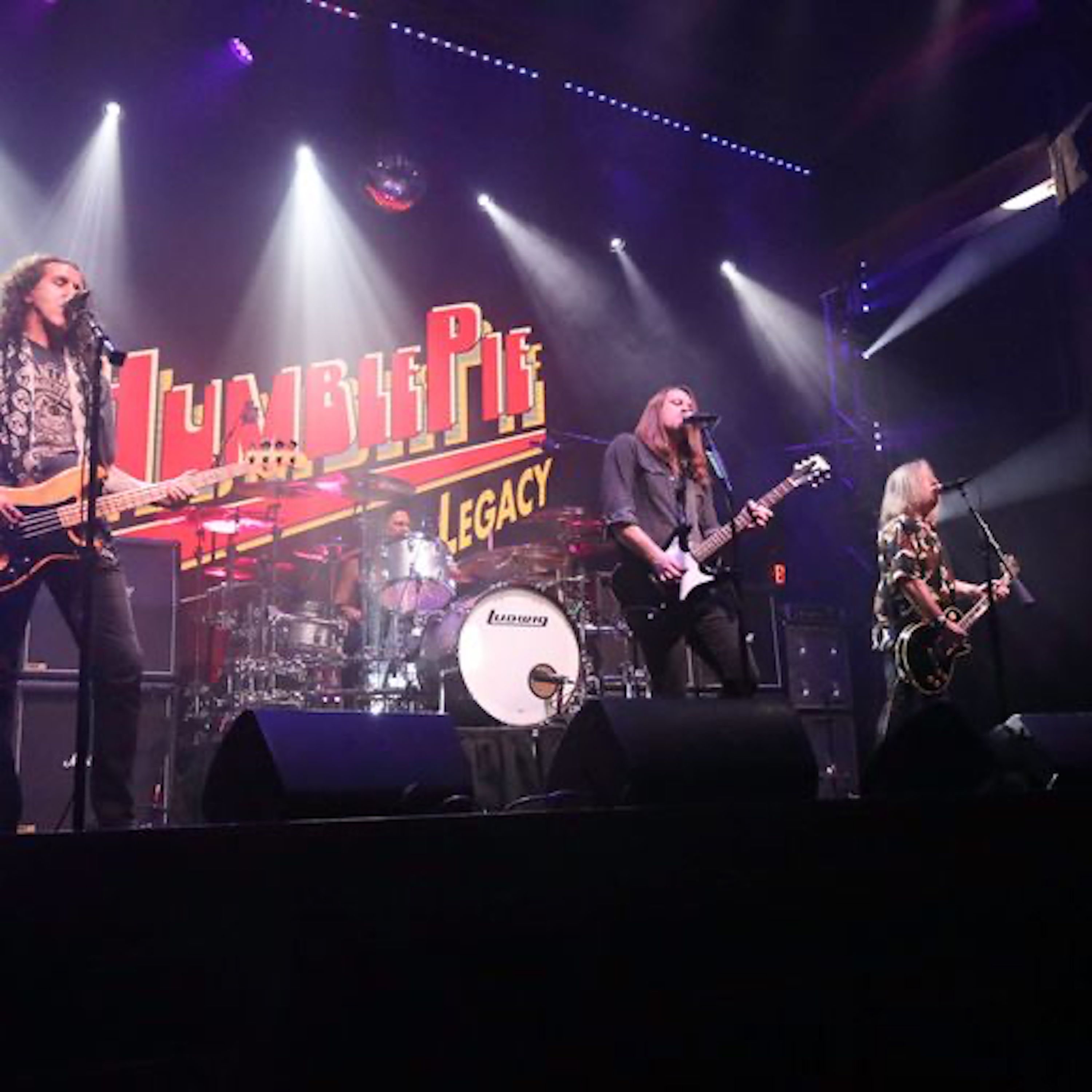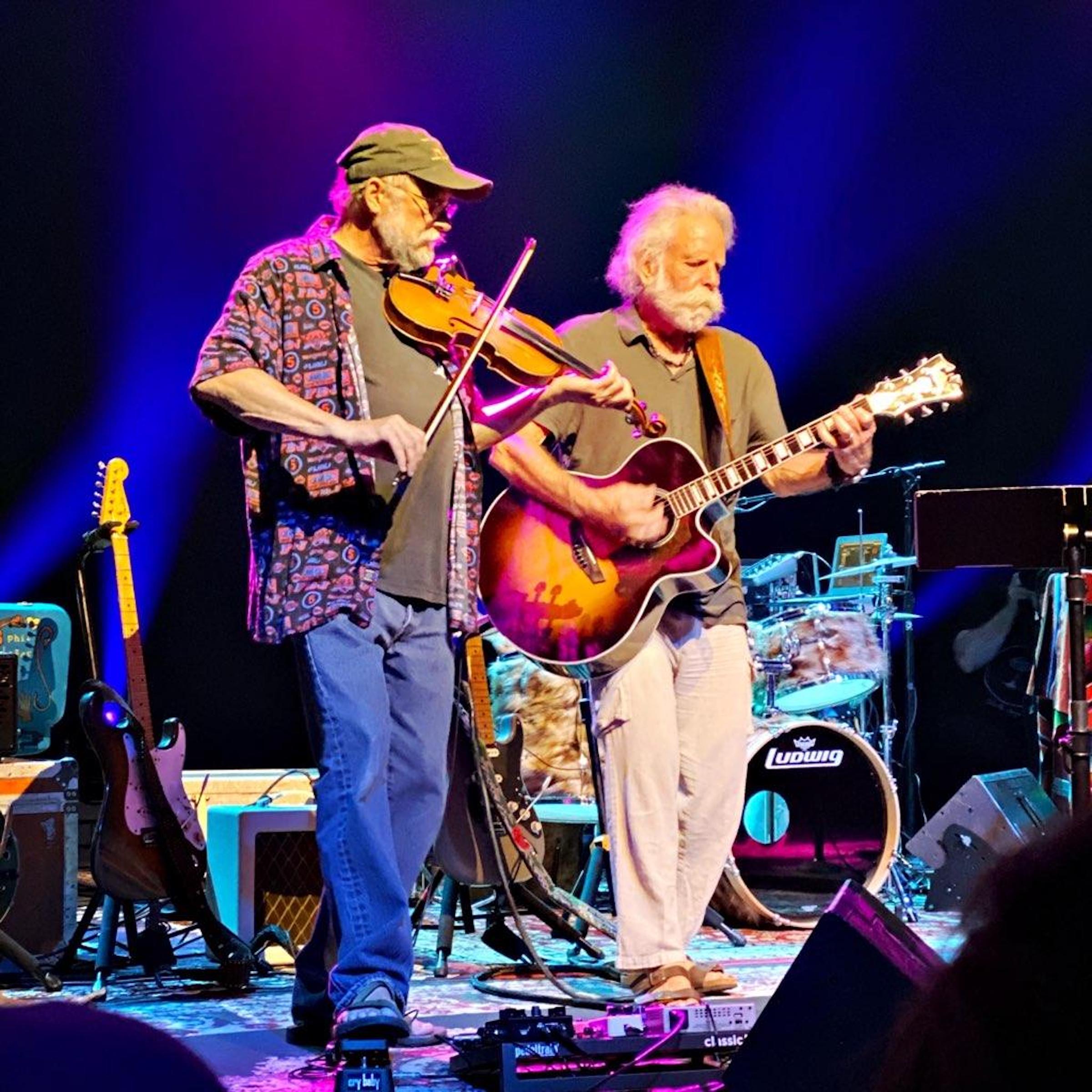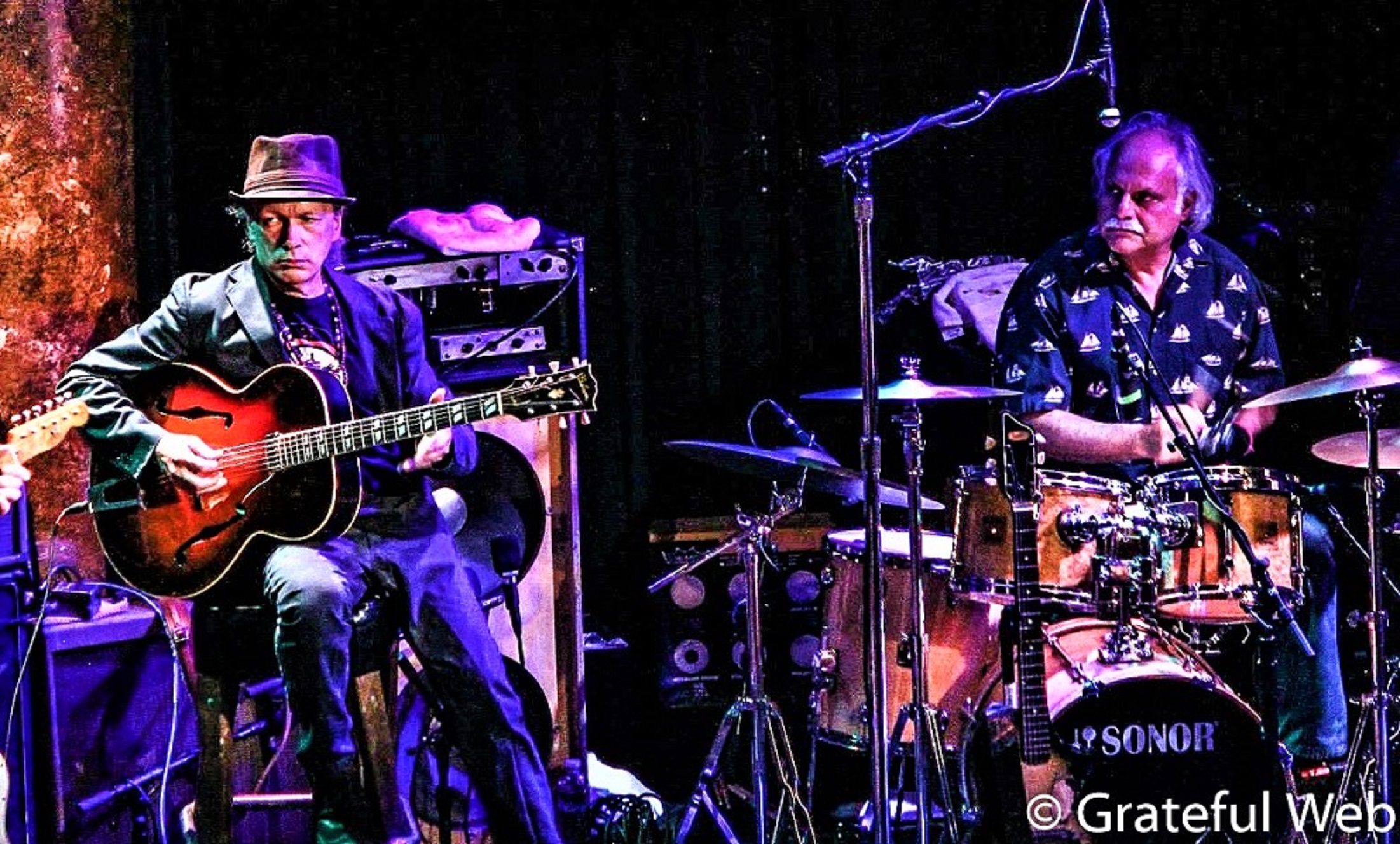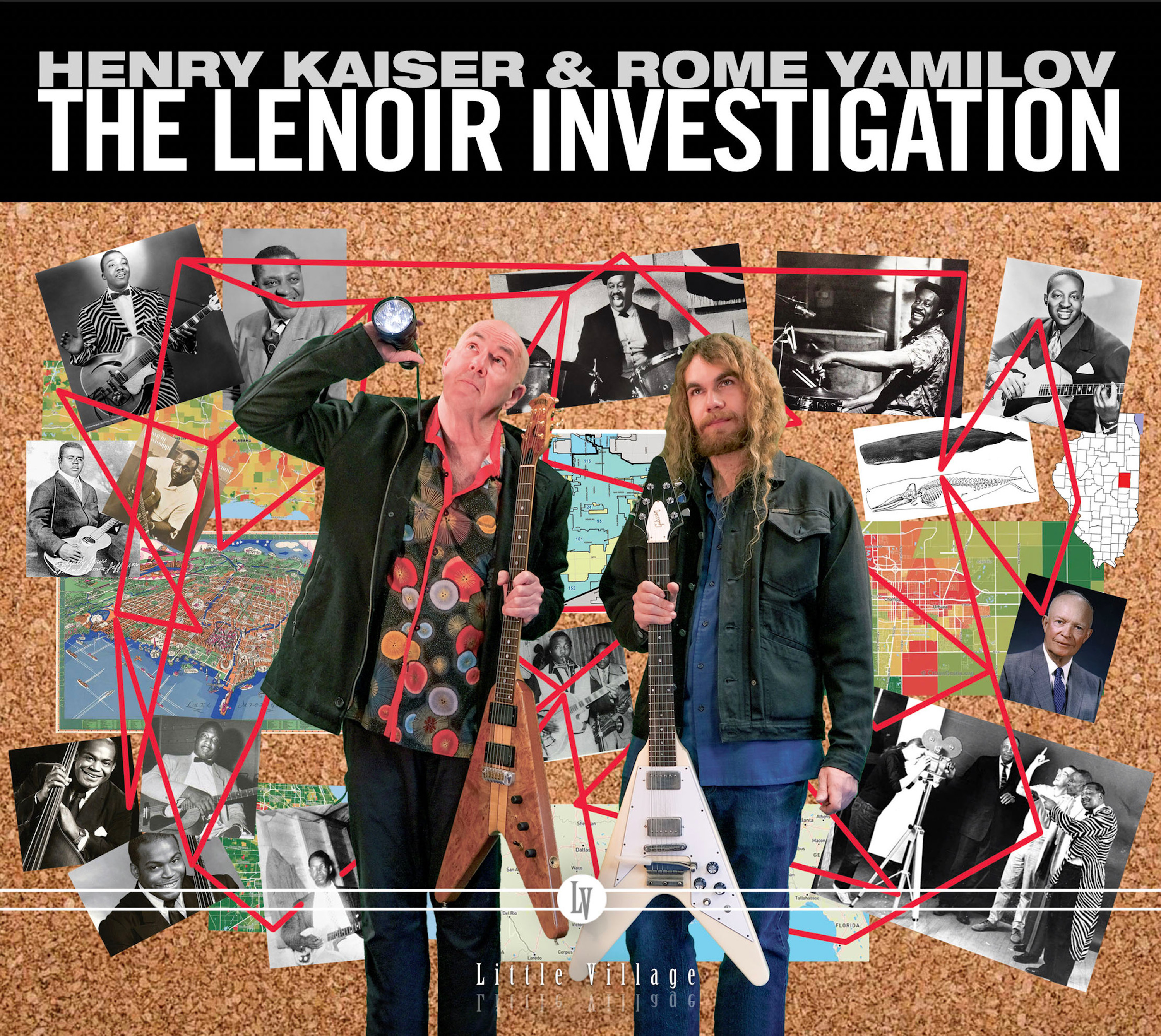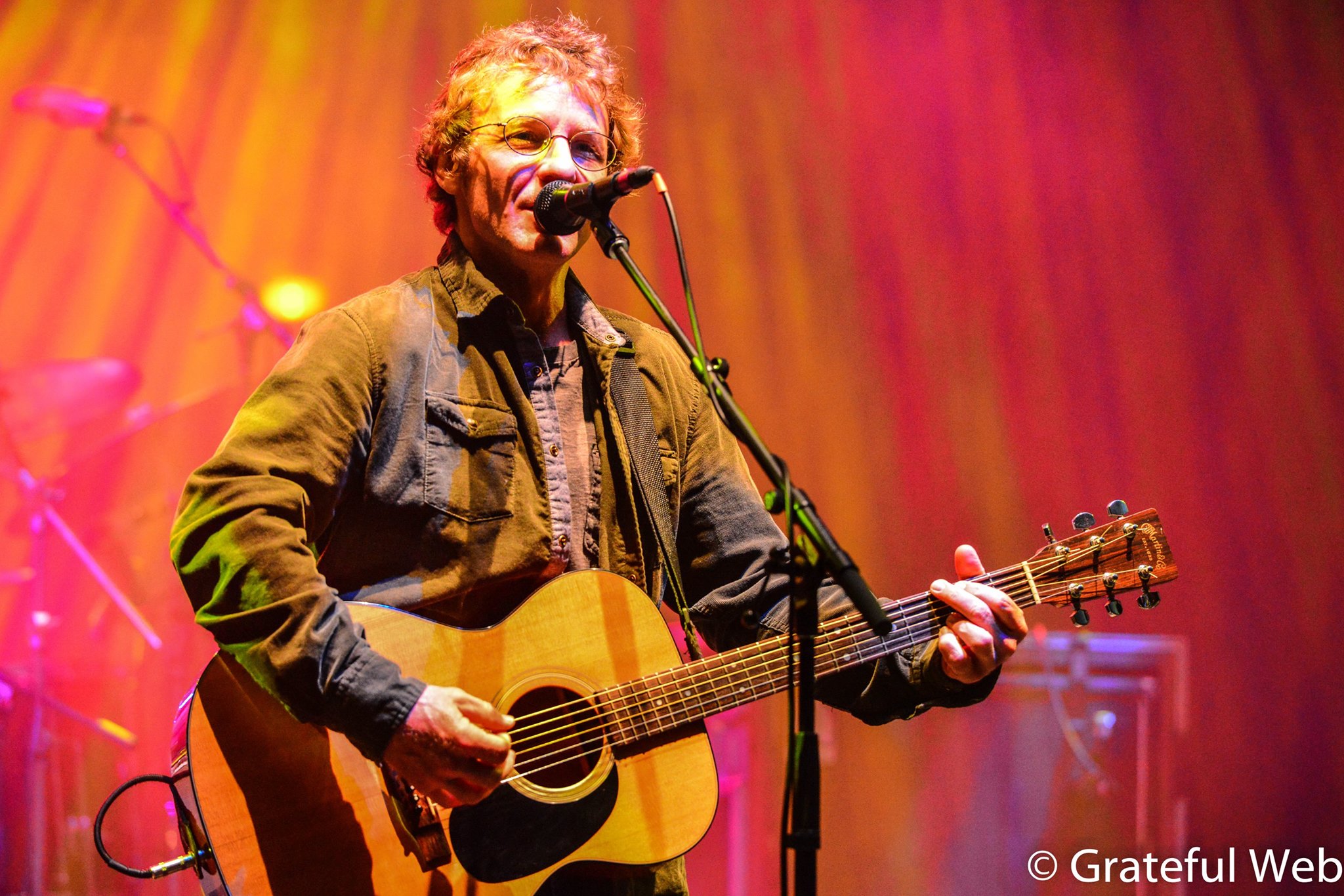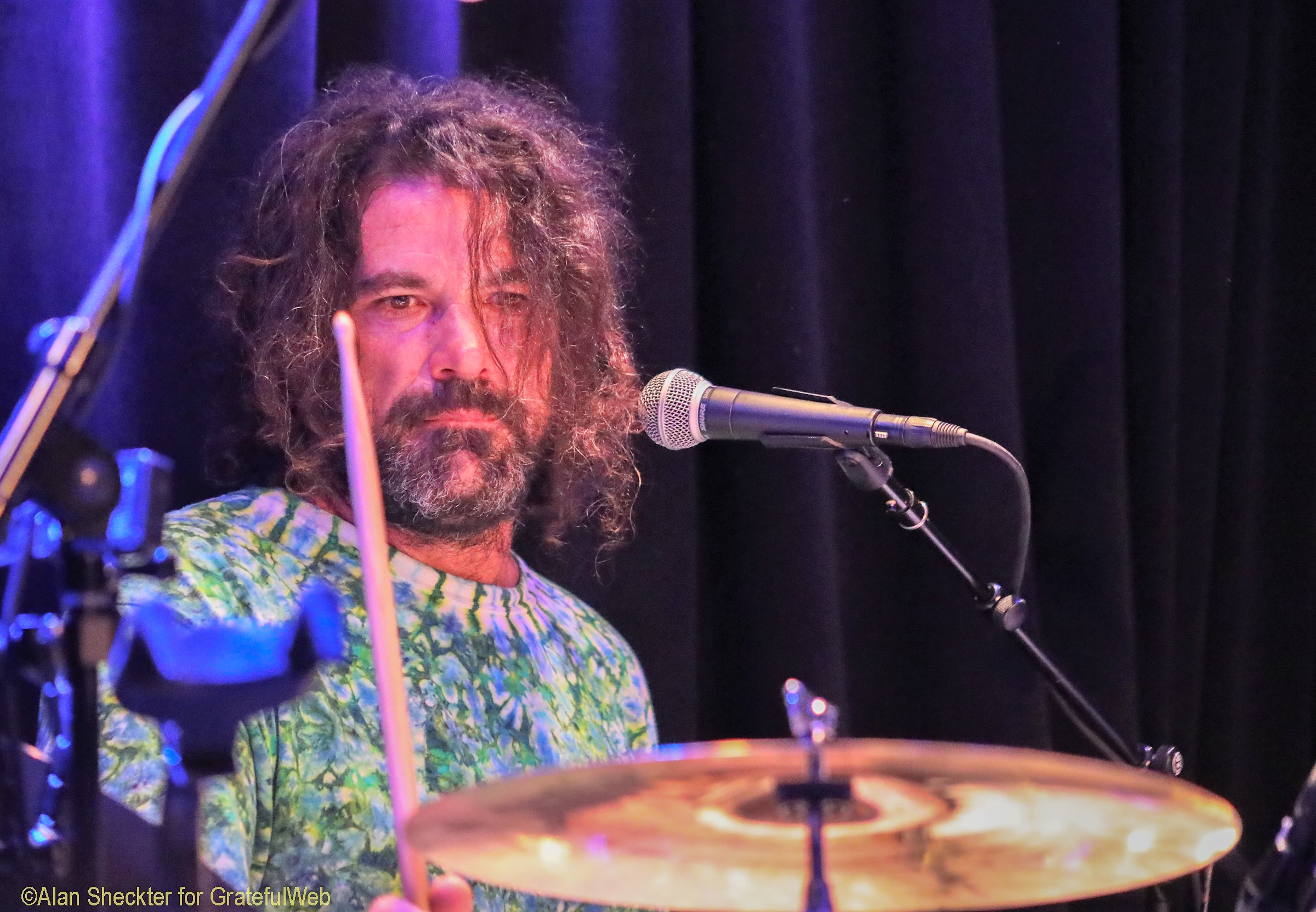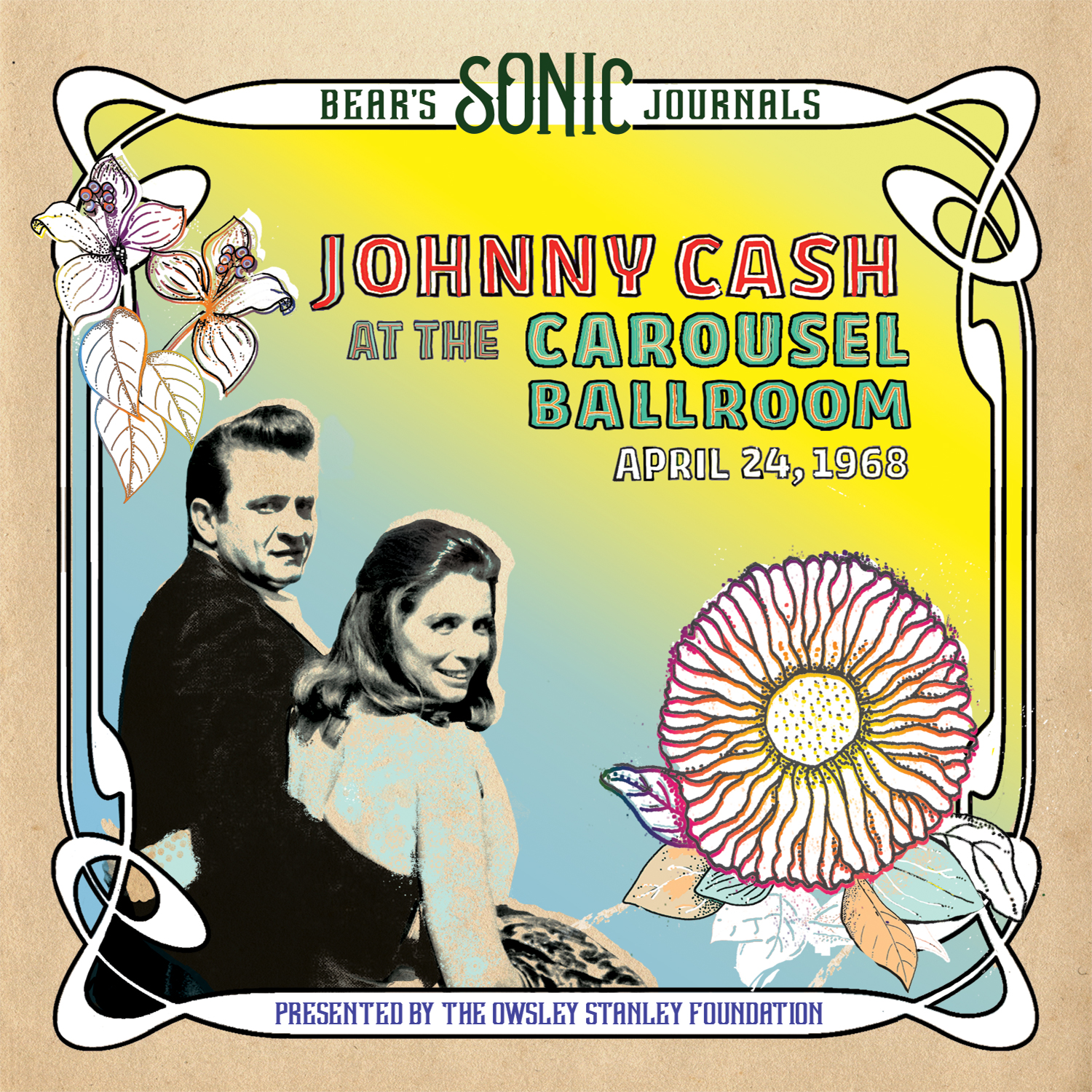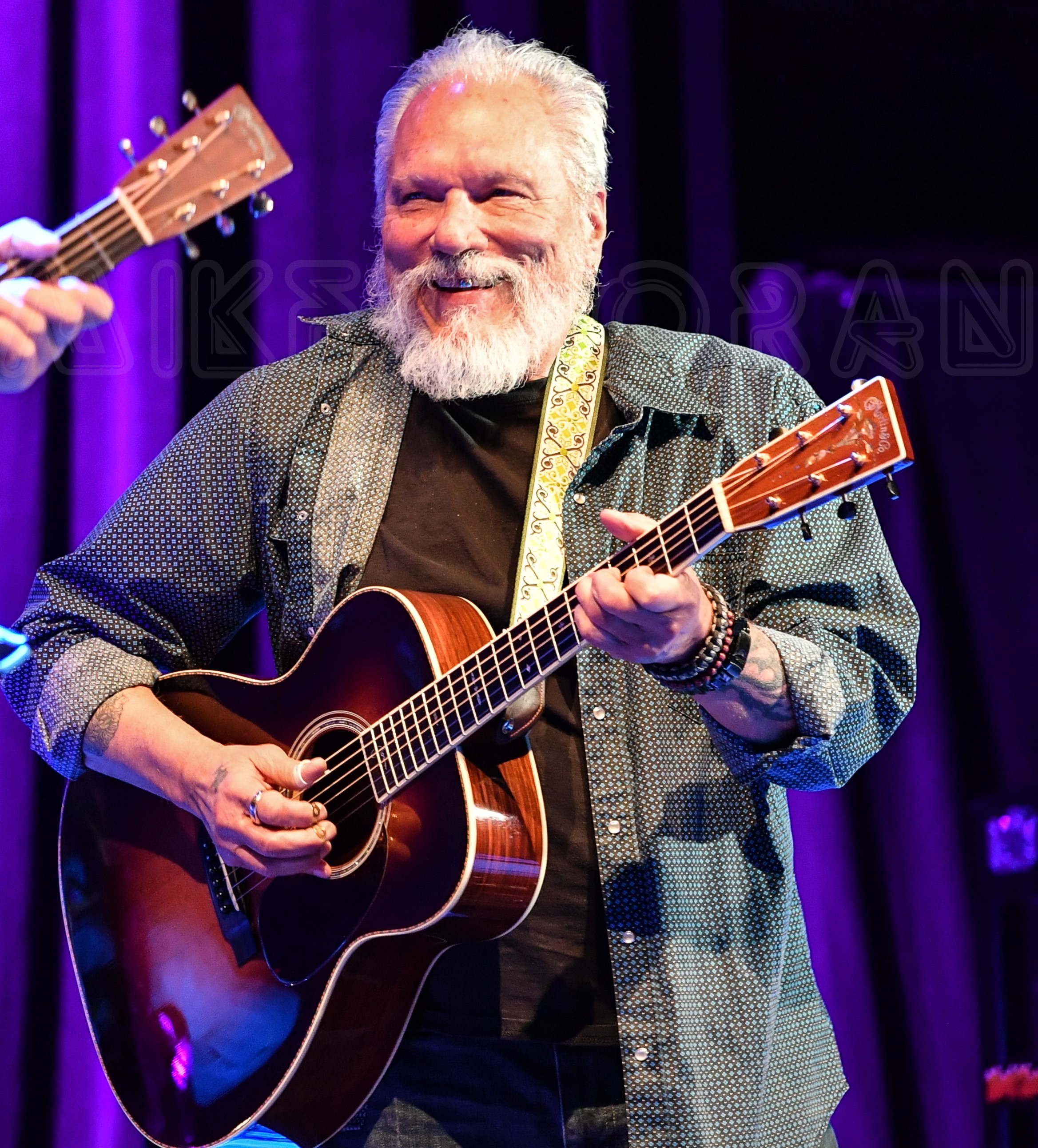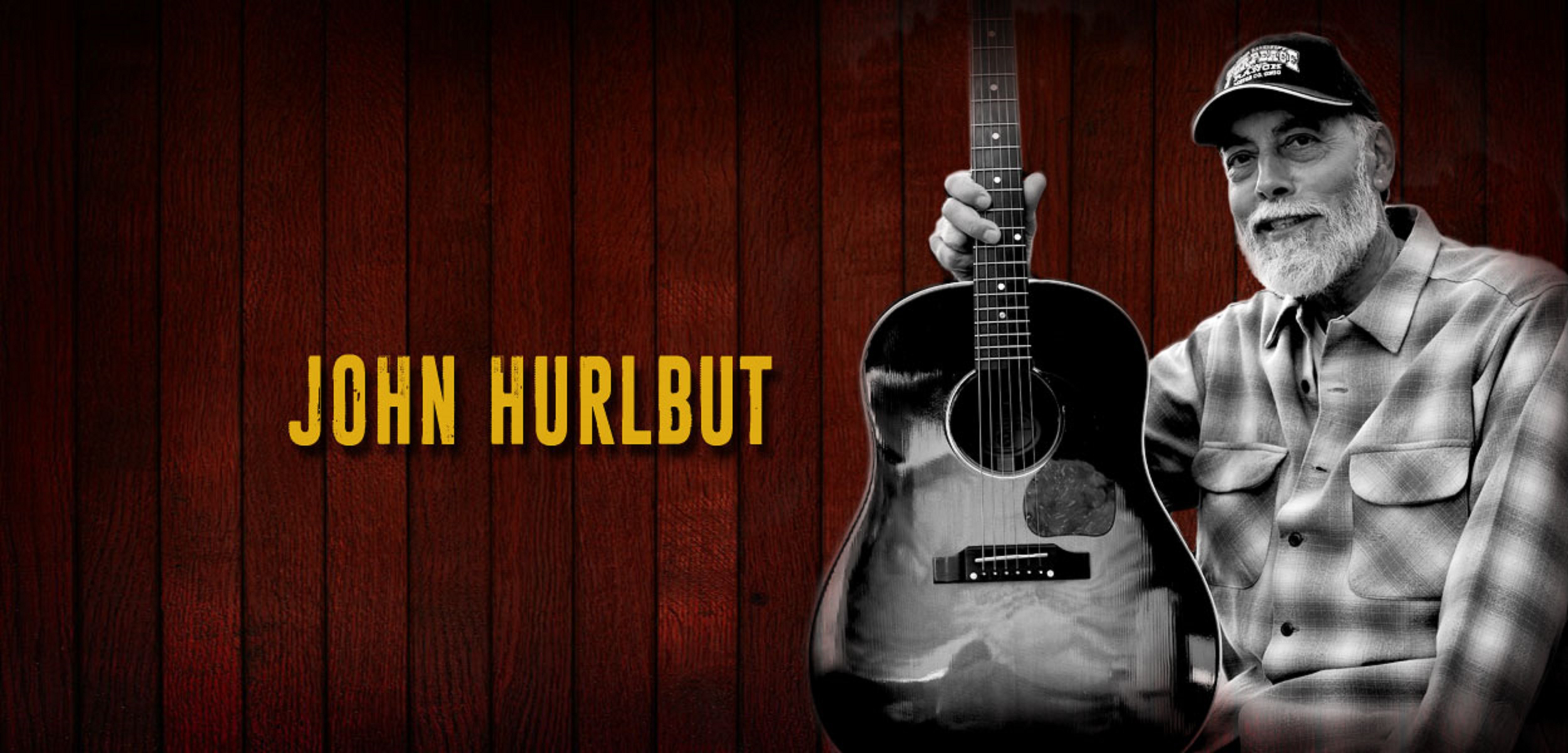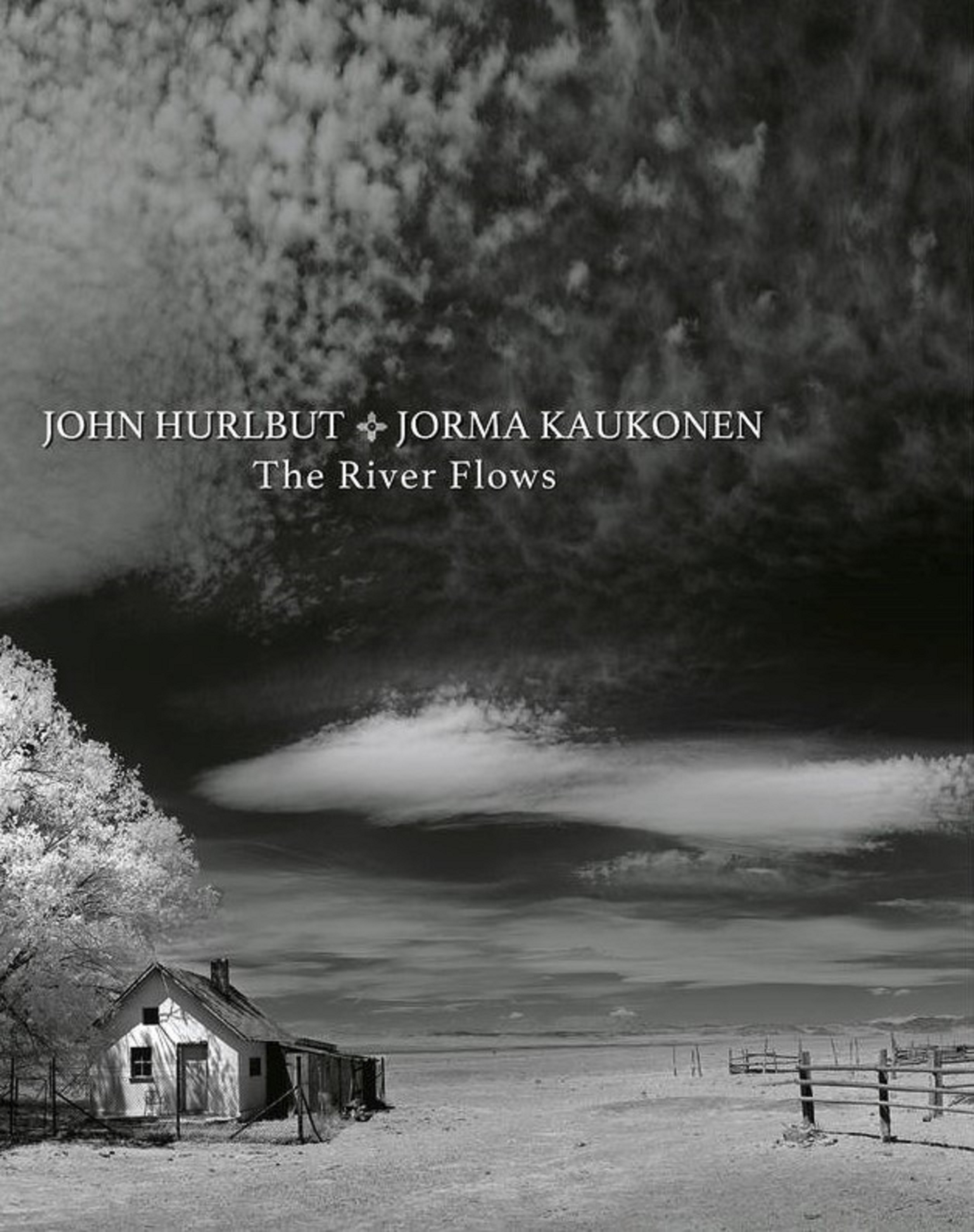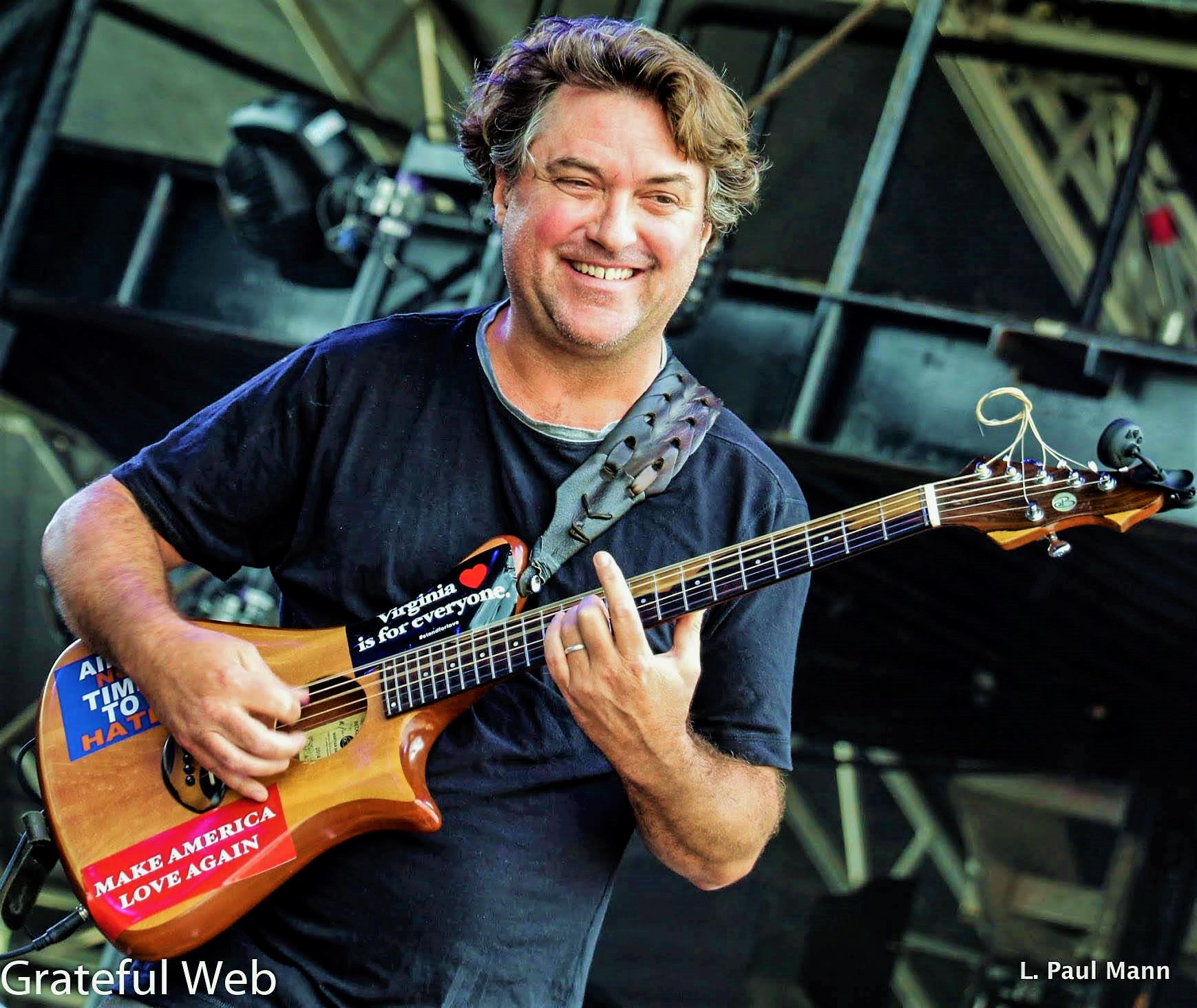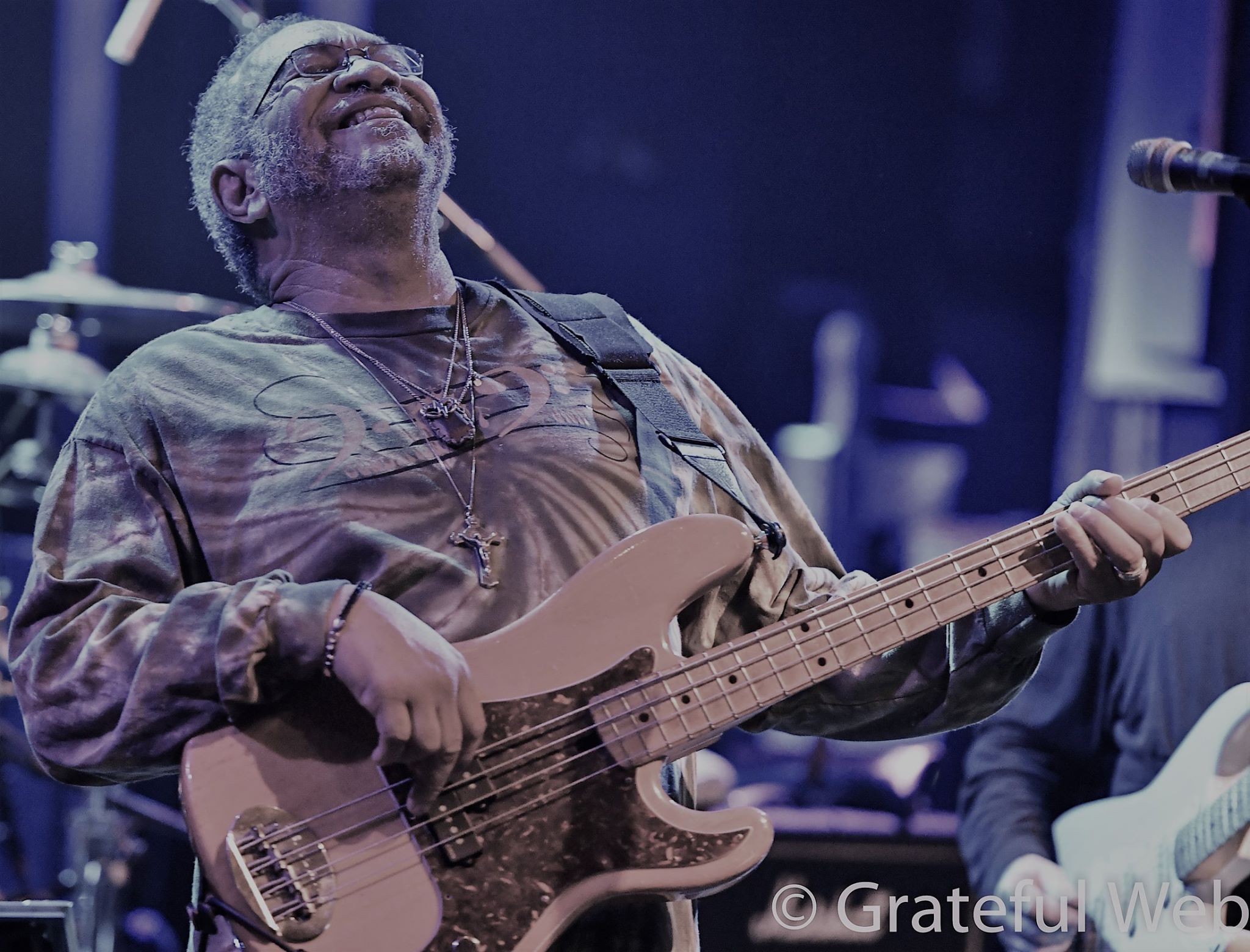When it comes to the Grateful Dead family, the old saying, “The whole is greater than the sum of its parts,” is epitomized by Deadheads the world over. Yet we would be remiss if we didn’t understand that this is due to the quality of the parts, and their relationship with one another. The whole cannot be greater than its parts if the parts do not serve the whole. And in the end, this is why the Grateful Dead survives. We come for the music, and stay for the family. And what a family we have become. So many glorious drops—of people, shared moments, and musical meetings—have flowed throughout this river time to bring us to form, each a glimmer that brought about the light. From the humble beginnings of a ragtag group of musical misfits to a life-changing, world-changing movement, the Grateful Dead community forever continues to draw moths to its flame.
One such glimmer has been long-time host of the Grateful Dead Hour, David Gans. Musician, author, journalist, photographer and general Deadhead jack-of-all-trades, David continues to serve this wondrous community which he loves. From his long-running show, Tales from the Golden Road, Sundays 4-6pm ET on SiriusXM 23 to offering live performances daily on YouTube, (4-5pm PST) Mr. Gans is still able to delight fans everywhere despite the limitations Covid has put upon his life. And with a new photo book coming this fall, Improvised Lives: Grateful Dead 1972-1985, we all can share in his intimate moments spent with the Grateful Dead. Having recently opened an online store, all of David Gans's books, along with a few others’ and some collectibles, are now available here.
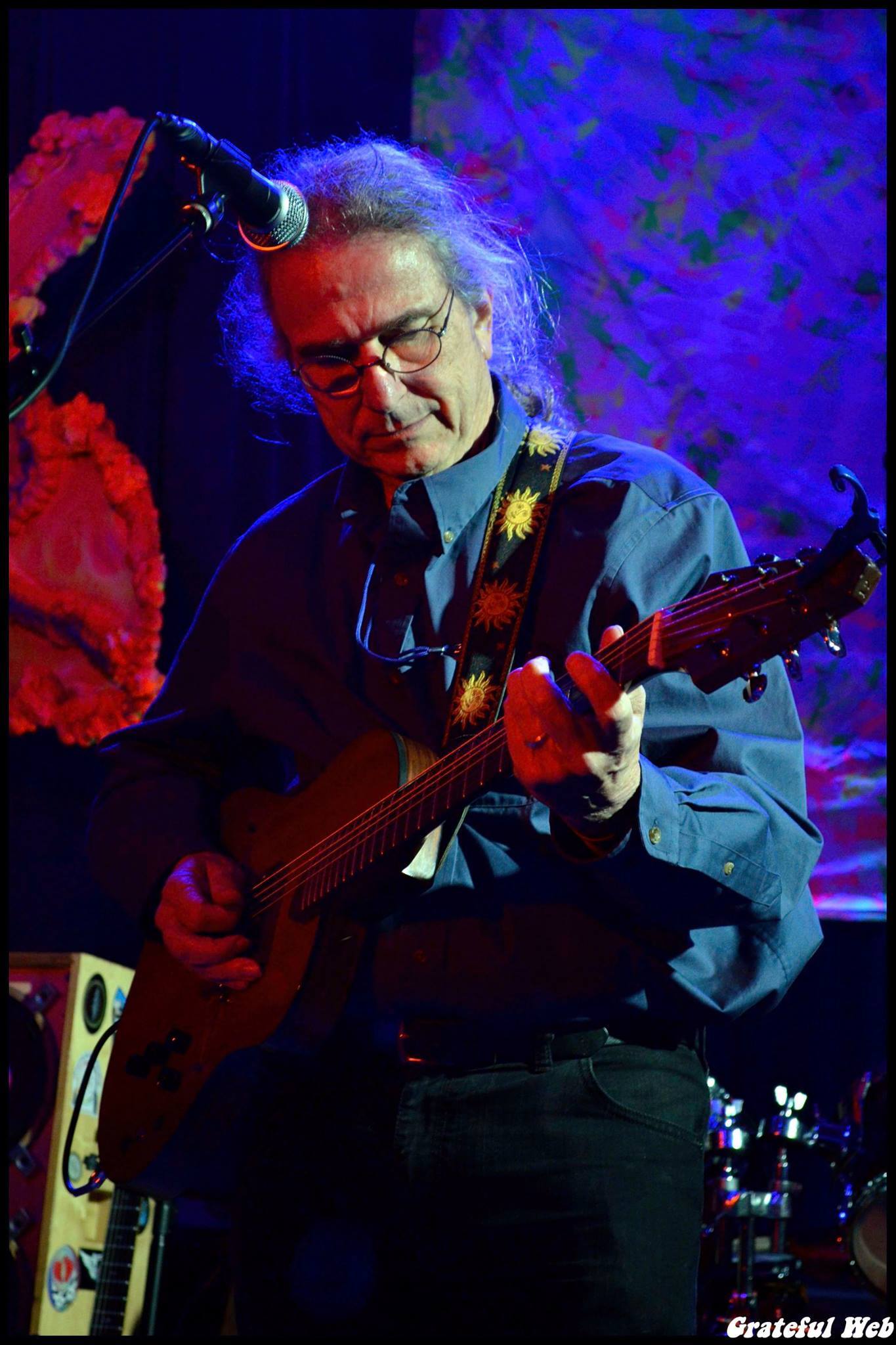
In appreciation of Mr. Gans and his contributions to not just the Dead community but also to the world, Grateful Web sat down with David to chat about his live performances, his upcoming book, his time with Owsley “Bear” Stanley, and discuss the magnificent blooming flower the Grateful Dead have become among other conversational tidbits.
GW: Hello, Mr. Gans. I feel like I’ve known you for decades with your name floating around the Dead community for so long. It’s nice to get a chance to chat with you.
David: Right back at you. Thank you.
GW: After Grateful Web’s last interview we did with you in 2013, your history was so well covered, I figured rather than being redundant, perhaps you and I can just talk about the last nine years.
David: I like it. I’m in favor of that. The main thing I’m trying to promote right now is that I’m playing live shows online everyday for the foreseeable future and I have been for two years.
GW: I’ve been watching those off and on over the last couple of years and with all you have going, I wondered where you found the time to be so steady in your output.
David: Well, I wasn’t touring. My last public gig before the thing (Covid) was March 6th. I sat here at home watching everything start to get so fucked up and April 20 was supposed to be my biggest month ever. I had a two week tour and a couple of festivals. It was really going to be an incredibly, almost too busy month, then one by one all those gigs just dried up. So I’m sitting here at home going, “What am I going to do?” Then people start doing online shows, everybody all the way up to Bob Weir and Trey are doing live shows online, and I think, “Okay, well, if I’m just going to sit here and wait until nobody else is doing anything, I’ll never work.” So I just decided to start playing, everyday. The technology exists and I just stuck my iPad up, my little touring PA, and started doing it. It turned out to be not only fun but turned out to make up a little of the lost income from the gigs and it got me a little core following of regulars. There’s a couple dozen people that are there almost everyday and I hear from people like you who watch them once in awhile. A lot of my old friends pop in and say hello. So it’s just been absolutely great! My singing has never been better, my playing has never been better, and it’s nice to have some continuity in my life. I’ve gone out and played—like yesterday I took the day off because I got hired to play a party here for a doctor I know. And I went down and played the Skull & Roses festival early last month. But mostly I’ve been sticking close to home and it’s been great for my spirit, great for my bottom line and great for keeping myself musically engaged while we wait for things to return to normal.
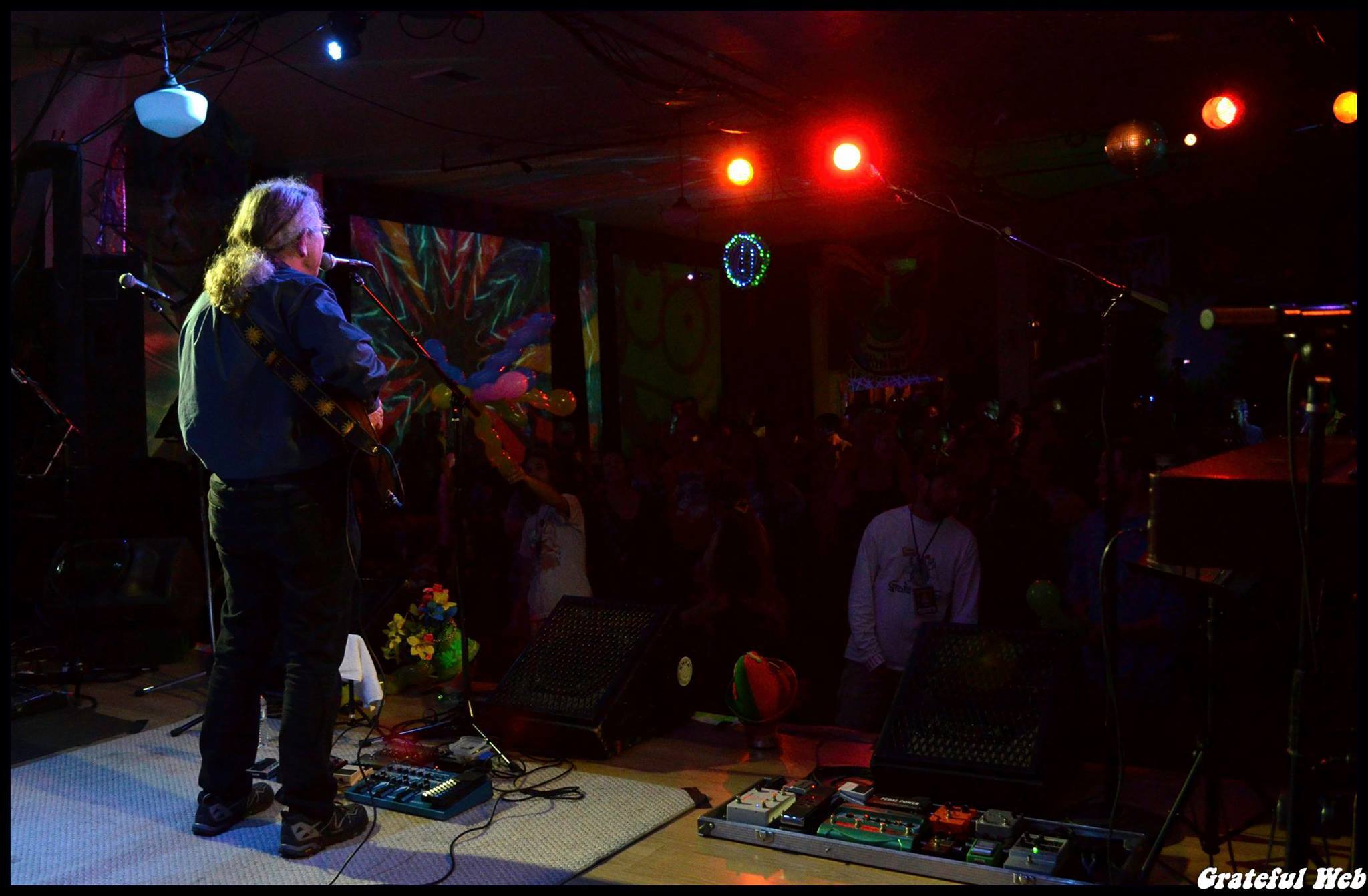
GW: [laughter] “Return to normal.” Good luck with that.
David: [more laughter] Right. Exactly. All the other stuff that I do—my radio shows I’ve been producing from home all along anyway—so most of my professional life is work from home except for going out and playing gigs. So finding out a way to play gigs from home was the key to not blowing my brains out a couple of months into this thing.
GW: Yeah. I can understand. Jorma Kaukonen was doing his Covid shows also.
David: Yes. I have fierce competition. Huge competition. [chuckles]
GW: It was great for all of us fans because while the musicians got cut off so did we.
David: Yeah, I know. Believe me, I know. It’s easy for me because I’m an old guy, right? My wife and I have been married 30 years and enjoy being together, and we weren’t exactly night life people anyway. Aside from the fact that I work until three in the morning when I’m a musician, we don’t go out that much. So the adjustment to staying at home wasn’t that difficult for a guy my age bracket, but for somebody half my age, not being able to go out nights, it’s like, “Whoa. What the fuck am I doing for a social life?” [laughter] So I understand how hard it’s been for a lot of people but it’s been relatively easy for me because of my life circumstance.
GW: It really opens up a lot of doors. I would catch you periodically over the last few years but it led me to checking out other stuff of yours. I actually ran into a great interview you did with Mikaela Davis one day last fall.
David: Yeah. She’s very cool. Doing good stuff.
GW: She was very talkative.
David: We did the interview on the Dead & Company tour last year. Me and Lambert got hired to do those interviews between sets on the nugs feed and I’m hoping we get to do that again this year. That was huge fun, man. We got to talk to so many different people. We had Jeff Mattson on. We had Paul Stamets, that psychedelic mushroom guy.
GW: Oh, I know Paul.
David: We even had John Mayer himself as a guest between sets on one of the shows. So that was really cool and we’re really hoping they let us do it again this year.
GW: I really enjoyed those. They were fantastic. You guys looked like a couple of happy clams.
David: Well, once again, getting paid to work from home, you know? It wasn’t feasible for us to go on the tour, and they wouldn’t have spent the money to take us on tour to do between sets interviews but the whole prevalence of all this Zoom stuff has just made it so easy. And the nugs people are really great at what they do, so again, we could sit here at home and do this worthwhile, fun, enjoyable thing, and shed a little light in the world. Finding ways to be creative when you’re stuck at home is a great life challenge.
GW: Since you brought up Skull & Roses, you performed at their first show back.
David: Yes. I’ve been at all of them. I played the first one so I’ve been at all four. I was booked to play the one in twenty. That was one of the big gigs in April 20 that got cancelled.
GW: How was it being back and playing with Brown-Eyed Women?
David: Oh, it was fabulous. The whole festival was great. You still had to be careful. We weren’t wearing masks outdoors but we were being careful. It was so delightful to be there with all those people again. So many of my musician friends and colleagues that I hadn’t seen in years were there. The Grateful Guitars Foundation did this wonderful thing. They brought all those Grateful Dead instruments, basses and guitars from Bob and Jerry—that are now in possession of these guys—and they brought them out and put them up in these glass cases so that all the fans could come and look at them. They also made them available to musicians to play. So when Dark Star Orchestra was on stage one night, Jeff was playing “Alligator” and Skip Vangelas was playing one of Phil’s basses, and Roger Sideman from The China Cats got to play Phil’s Ken Smith bass. It was really a sweet thing that all these guys got to play these classic instruments with all this magic attached to them on stage, in front of several thousand happy people. It was just a delight, the whole thing. The weather was pretty cooperative.
My playing with Brown-Eyed Women was just the icing on the cake. They’re such a lovely band, and I really enjoyed their set the day before, so getting to up there on stage playing with them was an honor and a real treat. They’re excellent musicians. It’s not a gimmick band. They’re all really, really good players, and play really well together. I’m just proud as hell of them.
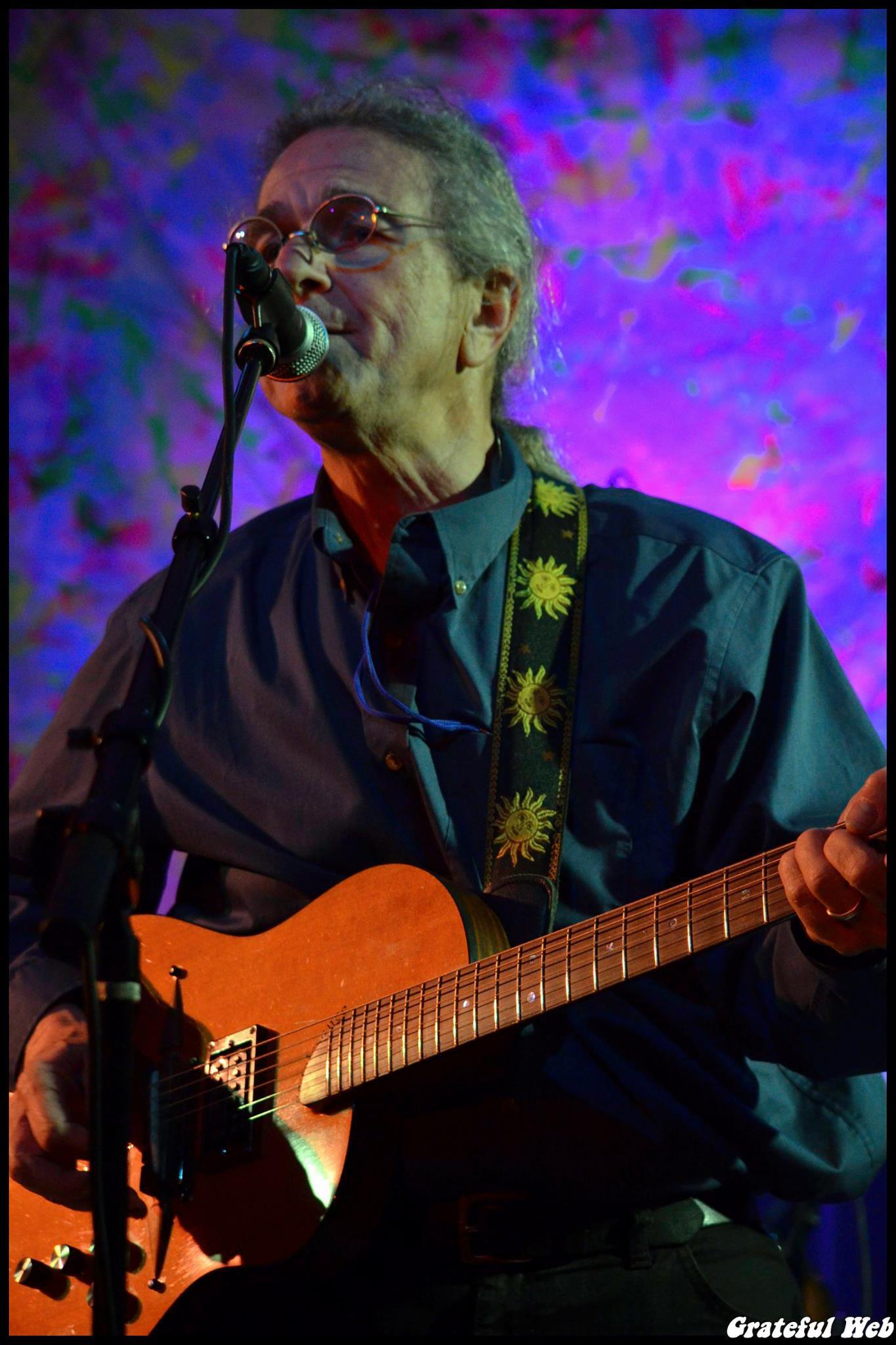
GW: I was fortunate to see the videos of Brown-Eyed Women at Skull & Roses with and without you. That was great. It was a real pleasure to watch. It’s been nice to have everybody back and rolling again. While I hate to move on, I hear you have a new book coming out this fall that’s kind of exciting.
David: Yes. Yes, we just completed a successful kickstarter for a book we’re calling Improvised Lives: Photographs 1972-1985. It’s my photos from my photojournalism years of Grateful Dead stuff. It’s not like Jay’s books, or Bob Minkin’s books. I didn’t do a huge amount of concert photography, and I’ve never been a real studio photographer, but I was a journalist with a camera. I spent my music journalism career, roughly '76 to ’86, where I took my camera with me and did a lot of photos of my subjects. I used to freelance photos along with my articles. So over the years, I got a lot of photos of Grateful Dead guys in sort of intimate situations, and some onstage stuff. I was at some of the Bobby and The Midnites rehearsals and got some nice photos, and got some pictures of Phil Lesh and Bill Kreutzmann farting around at Phil’s house. I got hired once to take photos of Billy playing a talking drum for a magazine ad, so there’s some photos from that session in there. Jay Blakesberg is producing the book and he’s writing the foreword for it, and he talks about the fact that I had this unique perspective because I was taking this weird path into the Grateful Dead as a journalist first and then as a friend and collaborator. So I have a bunch of photos in there that nobody else could have taken because they were in unique situations.
And there’s stories that go with those. For example, there’s a photo I took in the office of the mayor of San Francisco in I think February of ’83. It was a press conference to announce Bay Area Music Day in advance of the Bay Area Music Awards show, and so I spent the night at Bob Weir’s house the night before so I could drive him to this press conference in the morning, and I was there for the press conference and got this great photo of Bobby and Huey Lewis and Bill Graham and the producer David Rubinson and the mayor of San Francisco and the speaker of the assembly or whatever. So there’s this group of politicians and musicians in the mayor’s office and it’s just a one of a kind photo and there’s this really fun story that I tell in connection with that session that I won’t spoil by telling it to you now.
GW: I was hoping you had little stories with your pictures.
David: Yeah, some. It’s not really a full-on memoir. It’s mostly photos but there’s definitely stories to go with them because there are fun stories in regard to some of those. I was just blown away by the response to the kickstarter where we’re like a hundred and ten percent funded so we can afford to print some extra books.
GW: Nice. I know we’ll all enjoy that. You had every Deadhead’s dream to be in those situations.
David: Well, I was a fan. I started out as a fan in ’72, and I was already a musician when I started getting into the Dead. So I never became one of those people who loved the Grateful Dead to the exclusion of everything else. I went into music journalism basically as a way to educate myself and meet people and learn about the business, and to get free concert tickets and records and all, of course. And that led to meeting and becoming friends with a lot of people in the business, and meeting and becoming friends with people in the Grateful Dead world. It just kind of grew organically out of that. I’m sure I was starstruck on a certain level but I had already been a working journalist when I started meeting them so I kind of had a little bit of the sense of how to behave. I didn’t want to become too much of a fanboy in those encounters because they would have just decided that I was just another fan posing as a journalist. What happened was, I came to them as a musician journalist. And they figured out pretty quickly that I knew what was going with them musically and that I might be in a position to help explain that to the world. So they kind of embraced me as a journalist who appreciated them on a useful level. I think that probably led to my having a more productive relationship than the kind of fanboy approach. I never went out of my way to be critical but I also didn’t go out of my way to not be accurate in talking about things. So I think I came to it with a reasonable sense of what their value was and what I could do to help explain it to the world.
All of the other stuff that happened to me going forward from that—my first book deal was a total accident. I happen to be in the right place at the right time when I met Peter Simon, and Peter asked me to do the text for his book. And then I went with that book to the KFOG Deadhead Hour as a guest to promote the book and wound up becoming part of the team that put that radio show on. And then the program director asked me to take over responsibility for it. I never made a plan to do that. I just fucking did it because it was fun to do and it looked like it would be an enjoyable thing. I had a nice collection of tapes and all. I was totally unprepared for the fact that radio stations started calling me and asking if they could carry it too. I never made that plan either. All these things are just doors that opened up in front of me, and I’ll claim credit for being smart enough to recognize these doors opening, but I did not have any ambitions in those directions. I was just improvising my way through life, which is why I named the photo book Improvised Lives because I took that from them. Trust your instincts, do the stuff that’s fun and makes sense, and try not to hurt other people along the way. I just followed my nose and my instincts into an amazing life full of adventures, many of which overlapped with the Grateful Dead.
GW: That’s wonderful. My wife and I call it, “Following the arrows.”
David: Yeah.
GW: When the road opens up, who am I not to take it? And it’s lead both my wife and I to a wonderful life as well. Since we are talking about your books here, how about one that might have been a little more difficult, your one after Jerry died, Not Fade Away: The Online World Remembers Jerry Garcia.
David: That book was also not my idea. The publishing business is like a lot of businesses, they look for opportunities to do stuff that works—and after Jerry passed, a gentleman that I know who went under the name F. Stop Fitzgerald—he was a photographer that I met when we were both at BAM Magazine back in the seventies—and he had gone on to work in the book packaging business. He called me and said, “There’s a publisher here who wants to do a book about Jerry after his death. It doesn’t have to be a cheesy, stupid exploitative book. Do you have any ideas that would be cool to fill this niche?” I didn’t want to be capitalizing on Jerry’s death, but what seemed like a cool idea was I had been reading all these amazing tributes to Jerry online and thought, what if I collected a bunch of tributes from the internet and from The Well and places that I frequented, and they liked that idea, and the publisher that hired them liked the idea. So again, I never planned to do it. I would not have chosen to do a book exploiting Jerry’s death, as it were, but I was asked to do it. The book was going to happen and this was an opportunity to make sure it wasn’t a cheesy and exploitative book. It was a very sweet book of really heartfelt tributes from a lot of people that were big Deadheads and some who weren’t big Deadheads. So it was a nice opportunity to do something. It’s a book I’m certainly proud of, but it wasn’t a book I thought up and caused to come into existence. Again, I’m just lucky someone saw me as the person who could make that happen.
GW: Absolutely. I mean this as the greatest of compliments, but it sat in my outhouse for quite a long time.
David: [laughter] I know that’s a compliment. People have said that about This is All a Dream We Dreamed, too. It’s a really good bathroom book because you can read the whole thing in order or you can just pick it up and grab a story at random. And that’s fine.
GW: Yeah. And it’s always good to hear people’s thoughts on Jerry.
David: Yeah.
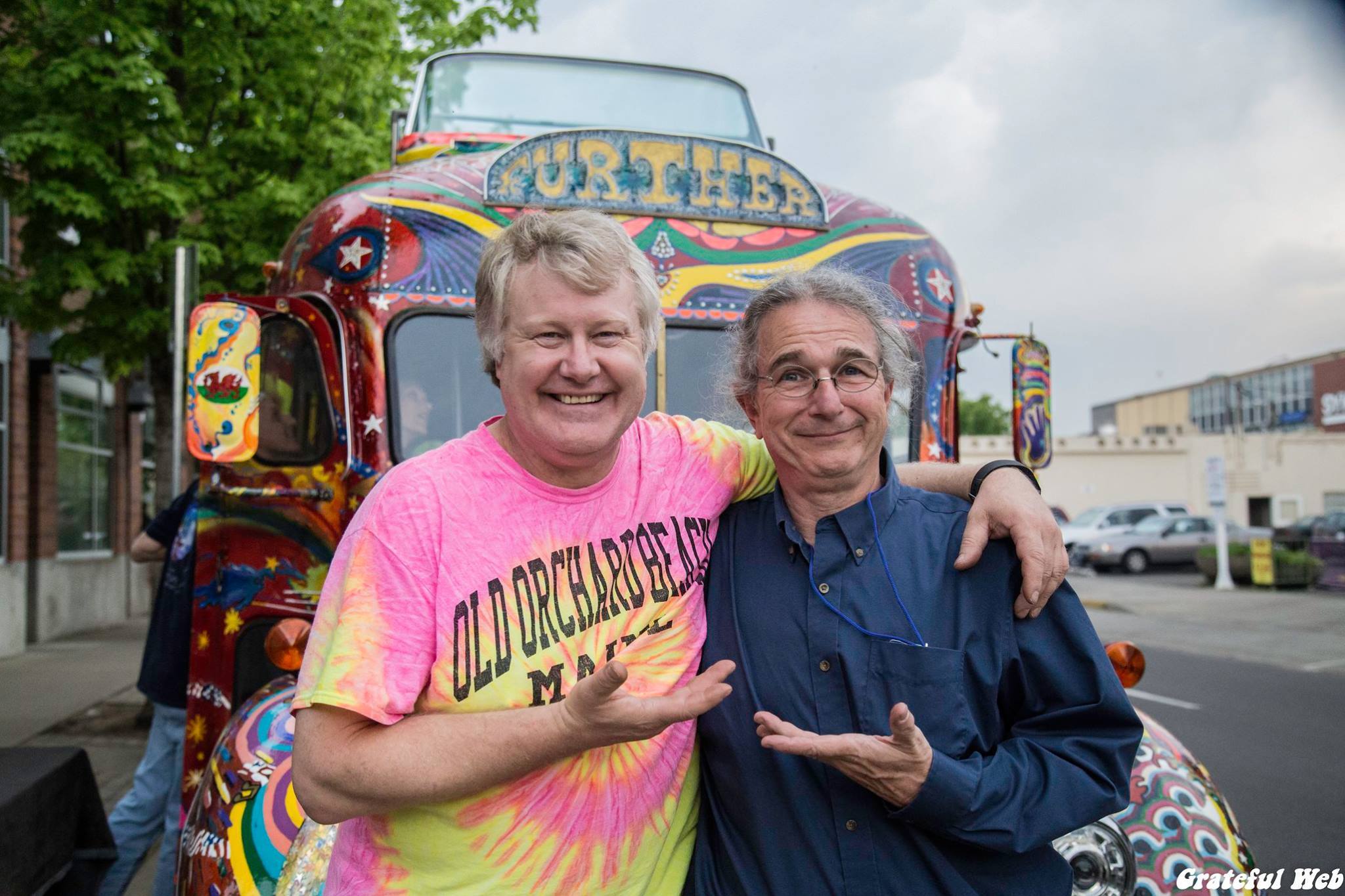
GW: You had the opportunity to talk with both John Curl and Owsley Stanley about sound creation with the Grateful Dead. I’m curious what your take is on how instrumental these guys and the Dead were to music today.
David: Owsley, I met him through hanging out with the Grateful Dead and stuff. I don’t recall exactly why he agreed to do an interview with me after hiding from the press for most of his life. It probably had to do with the fact that I had met him and hung out with him in the context of Phil Lesh’s house. Bear too had opportunities to recognize that I was probably not your typical journalist nor your typical fan, that I was somebody that had some skills and some appreciation for what they were doing. He was kind enough to give me, I don’t know, like a four hour/six hour interview or something in my house that night. It’s all right there. He explains how his experiences with synesthesia at a Grateful Dead concert led him to an understanding of how sound works into specifying what wound up being the wall of sound.
I know less about John Curl. I was invited to do the interview with him by the San Francisco Audiophile Society, which I’m not a member of but I know people who were a part of that. I did the interview with him just in the last few years. I’m not that deep into the technology so I can’t really assess. I also interviewed John Meyer many times over the years. I did some work for Meyers, writing stuff for them for publication. Those guys are very articulate and speak very well for themselves so I’m not sure what I can add to people’s understanding. Read the texts and you’ll see what those guys brought to it.
GW: How was it spending all day with Bear?
David: I had spent time with him before as I say, socializing at shows and concerts and stuff like that, so I knew what his nature was. I was thrilled. I mean, he came to my house and told me his story. The text of the interview in The Conversation with the Dead is much more complete than the audio excerpts that you see on that YouTube thing. That was all from a Grateful Dead Hour presentation from years ago. I’ve been trying to get the Owsley Stanley Foundation to release the complete audio of the Bear interview and I have not been able to talk them into it yet but one of these days they will. It would be fun if people could hear the entire thing.
GW: It’d be great.
David: Those guys are doing great work. I will tell you that when Bear came to my house he insisted that we use a pressure zone microphone to record the interview. And he accomplished that by taking one of my condenser mics and pointing it at a piece of glass set up on the floor between us. And because I understood the principle of pressure zone miking, I said, “Okay, that’s fine but I want to record a normal mic on the other channel as backup.” So I put my other condenser mic in the room between us and we wound up with two channels of similar sound and it turns out the pressure zone mic-ing worked out really, really well. They both sound great. They sound different, but they sound great. So I indulged his preference for the technology and it turned out he was right about that.
The interview kind of speaks for itself. If you read the interview in the book he goes into some depth about things, like he thinks that plants have consciousness, and that marijuana in particular made itself attractive to humans as a way of preserving itself. It was very interesting and I challenged him a few times here and there--by way of getting him to clarify--and he was great. He was incredibly opinionated and had a very strong belief in his own genius, which was almost entirely well-founded. He was a very deep and engaged person, and had very, very strong opinions and a lot of genius ideas, and was a handful to deal with at times.
GW: Being a person that has come out of the deep wilderness of Alaska after decades, plants being conscious is not a new one to me. [laughter] And if you saw it that way, it would be hard to eat them. [more laughter]
David: I also know some deeply religious people who apologize to their salads but that’s a side matter.
GW: I look at the brain, instead of the birth of consciousness, as more the fruit of the consciousness tree.
David: There you go.
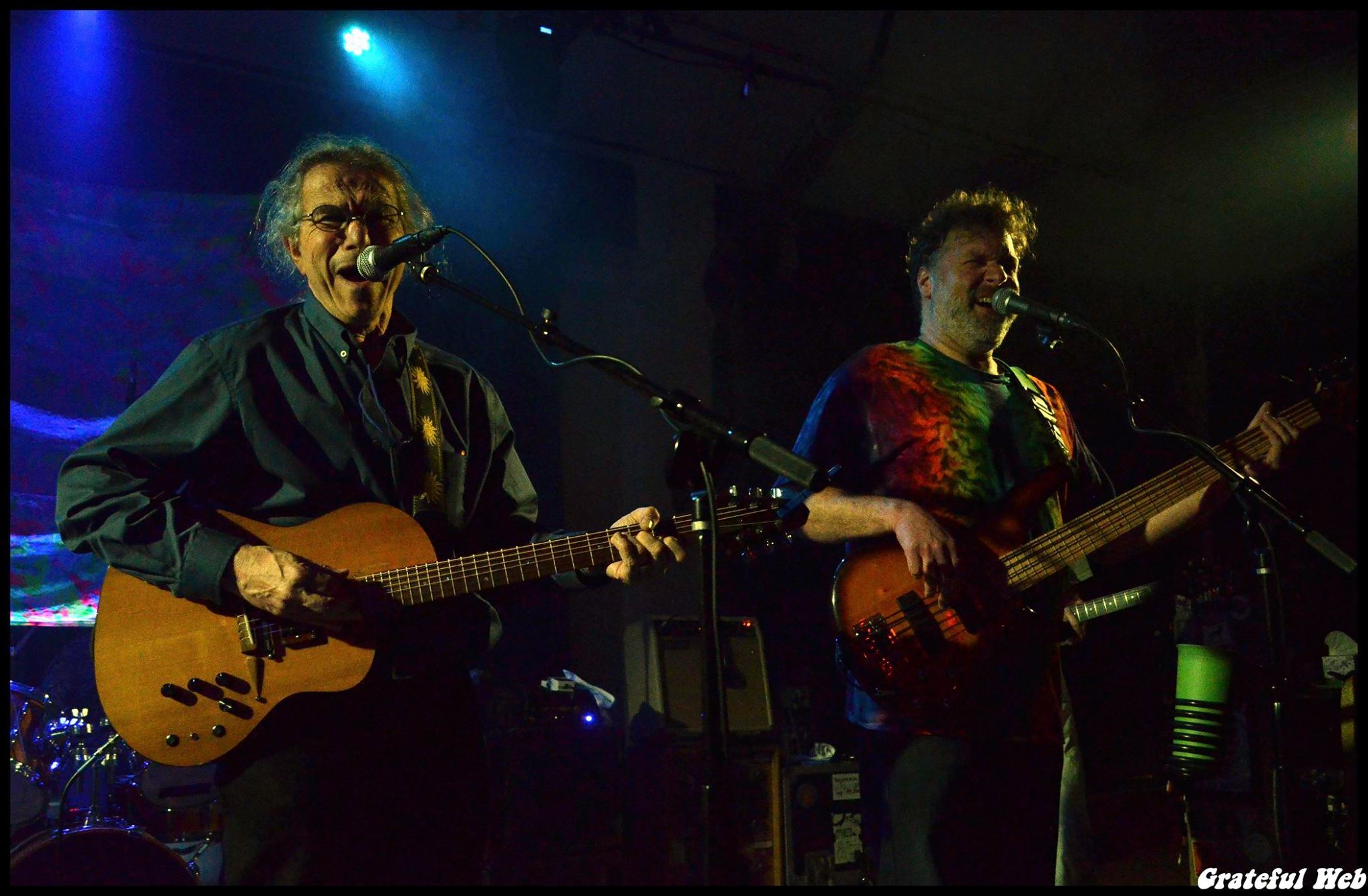
GW: As a writer, I’m going to touch on your talents perhaps. In my mind I’ve been trying to articulate the legacy of the Grateful Dead. When I look at all these music festivals, all these young artists, what the music has grown into is seriously mind-blowing.
David: Yes.
GW: How is it even a describable thing?
David: Huh, well. [chuckles] In nineteen-eighty-one when Blair Jackson and I interviewed Jerry, I said, “This music is immortal and it’s going to outlive the people who made it.” And Jerry agreed. He understood that. It wasn’t a vain thing for him to say. He was just acknowledging what we all recognized at that point.
I was a musician when I got turned onto the Dead and I started learning Grateful Dead songs and I started learning that Grateful Dead way of making music. I met up with some musicians in Berkeley and started playing Dead music with them over the years. We took a lot of inspiration from the Dead. Like the Dead, we didn’t limit ourselves to just one thing. We did what they did. We mixed our own original music with music we got from other places and strung them together with jams, which is exactly what the Grateful Dead did. We did that same thing and it turned out there were people doing that all over the country. I’ve gotten to know lots of them over the years. Some of my contemporaries from then are still making music, like Jeff Mattson goes back to the early seventies. He’s a couple of years younger than me but we followed similar trajectories. We played in bands that love the Grateful Dead, played Dead music, but we also wrote our own music and we borrowed tunes from other places and interpreted them in our own way. And that’s been going on all these years, and in the years since the Grateful Dead passed it’s only gotten bigger.
I remember thinking when Jerry died that the Grateful Dead Hour would probably wind down over a couple of years and I was going to have to figure out what I was going to do with my life after the Grateful Dead Hour. That’s one of the reasons I started touring. I figured it was time for me to get back to doing my own music and spend more energy on that.
Also a factor in that was in the wake of the Grateful Dead all these scenes popped up. More bands were playing Grateful Dead music, and more people were still craving that Grateful Dead experience, and they went to those clubs to hear those bands. Then these festivals started springing up that were looking for ways to keep doing what we did with the Dead. And some of those festivals, like Gathering of The Vibes, which was a particularly big one that I was part of for most of its existence, began as an event called Deadhead Heaven in nineteen-ninety-six. It was specifically intended as a place for us to do the kind of stuff we did at Dead shows. It was mostly Dead tribute bands and related kind of bands from the Grateful Dead musical diaspora. It turned out that this culture really, really, really wanted to continue itself even without its figurehead. And by the way, all the musicians in the Grateful Dead—Phil took a couple years off, Kreutzmann took a couple of years off, but they both went back to work. Mickey and Bobby never stopped working. So here we are, twenty-seven years after the death of Jerry Garcia and the scene is immense, bigger than it was then. Grateful Dead music is more popular than it was then, and it’s being played all over the country. There’s a website called GratefulDeadTributeBands.com, and you can go on there and tell it where you are and it’ll tell you what Dead tribute bands are playing in the area. They’re everywhere. There are hundreds of bands playing Grateful Dead music in hundreds of venues in this country. Other countries have Grateful Dead tribute bands and have Dead nights in their bars and stuff like that. I know musicians in the UK who play Grateful Dead music. I’ve been hearing about this whole scene of Japanese Deadheads. So it is immortal. We knew it was going to live forever. We knew these songs were going to be inspiring people forever. And then you go to a thing like the Skull & Roses festival, and there’s like forty bands all playing Grateful Dead music, and somehow we managed to not all play Shakedown Street. [laughter] And that’s because there’s so much Grateful Dead music. Nobody tried to coordinate our set lists or anything. I totally rearrange Grateful Dead songs. Very little of what I do is like a direct copy. I change the keys and the grooves and stuff to make them suit my solo style. So I wasn’t worried about duplicating but I did make sure my set at Skull & Roses included “Days Between” which I figured wasn’t going to be played by a lot of people, and it’s one of my favorites songs to do these days.
GW: I love that song.
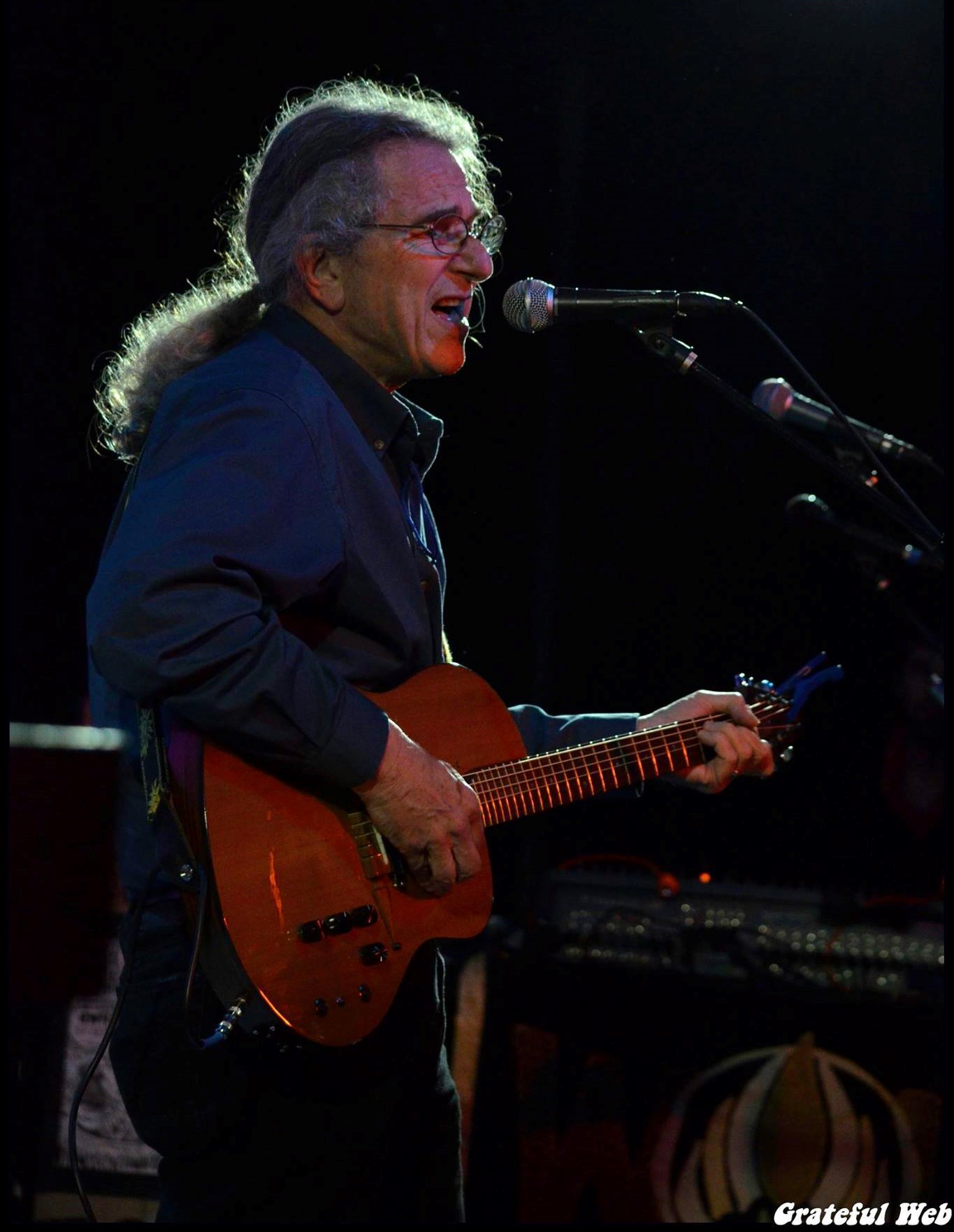
David: Now, Xtra Ticket, that came on after me, they deliberately planned a set that included stuff like “Victim of the Crime”, and “Way to Go Home”, figuring that that would be a way to avoid being too repetitious. The point is that there’s a huge amount of Grateful Dead music and nobody ever plays it the same way twice and it wasn’t at all tedious or repetitive because we got to hear all these different people’s approaches to the music. Brown-Eyed Women are all terrific musicians, and their take on those songs was different from Dark Star Orchestra’s take on those songs, and different from Keller Williams and Grateful Grass, you know what I mean?
All of the people are telling the story in their own voice is a way to put it. We’re all doing and taking this music and moving it forward in our own ways exactly as the Grateful Dead took other people’s music and moved it forward. They took their Bob Dylan and Beatles songs and their old blues tunes and their country tunes and made them Grateful Dead songs. We’re all doing that with Grateful Dead songs now.
GW: I talked with Henry Kaiser a couple of days ago and he was talking about wanting to take all the Pig Pen songs and doing something with them to make up a set in recreating those songs in a unique and creative way.
David: Well Henry is one of the most versatile and out there musicians I’ve ever known. We’ve talked about doing things at various times. He wanted to do a gig—we talked a few years ago where we would do a bunch of Neil Young songs and a bunch of Grateful Dead songs but swapping styles, doing Grateful Dead songs Neil Youngishly and doing Neil Young songs Grateful Deadishly but we couldn’t find a venue that would let us do it. [laughter] So it never happened. I had a band for a little while called Rubber Soldiers that took Beatles’ songs and stretched them out Grateful Dead style, and the elevator pitch for that was, “What if the Beatles had stayed in San Fransisco after that Candlestick show and started playing the Filmore? Maybe they would sound like this.” [laughter] So we did mashups of Beatles songs and we stretched them out and jammed them out for fifteen minutes as if they were Dead songs. Mikaela Davis playing Grateful Dead on the harp. It’s so nice. There are so many different ways to make these songs sound like you doing them instead of pretending to be somebody else doing them.
GW: It’s fun watching what Phil did with Terrapin and how Bob’s been playing with people, and Billy and The Kids are just on fire right now.
David: [laughs] Yeah.
GW: The mentorship that they’re offering to all these musicians has been wonderful. They’re opening so many doors for so many people, musician and fan alike.
David: Yeah, and Bobby, I love what Wolf Bros are doing. Oh my gosh.
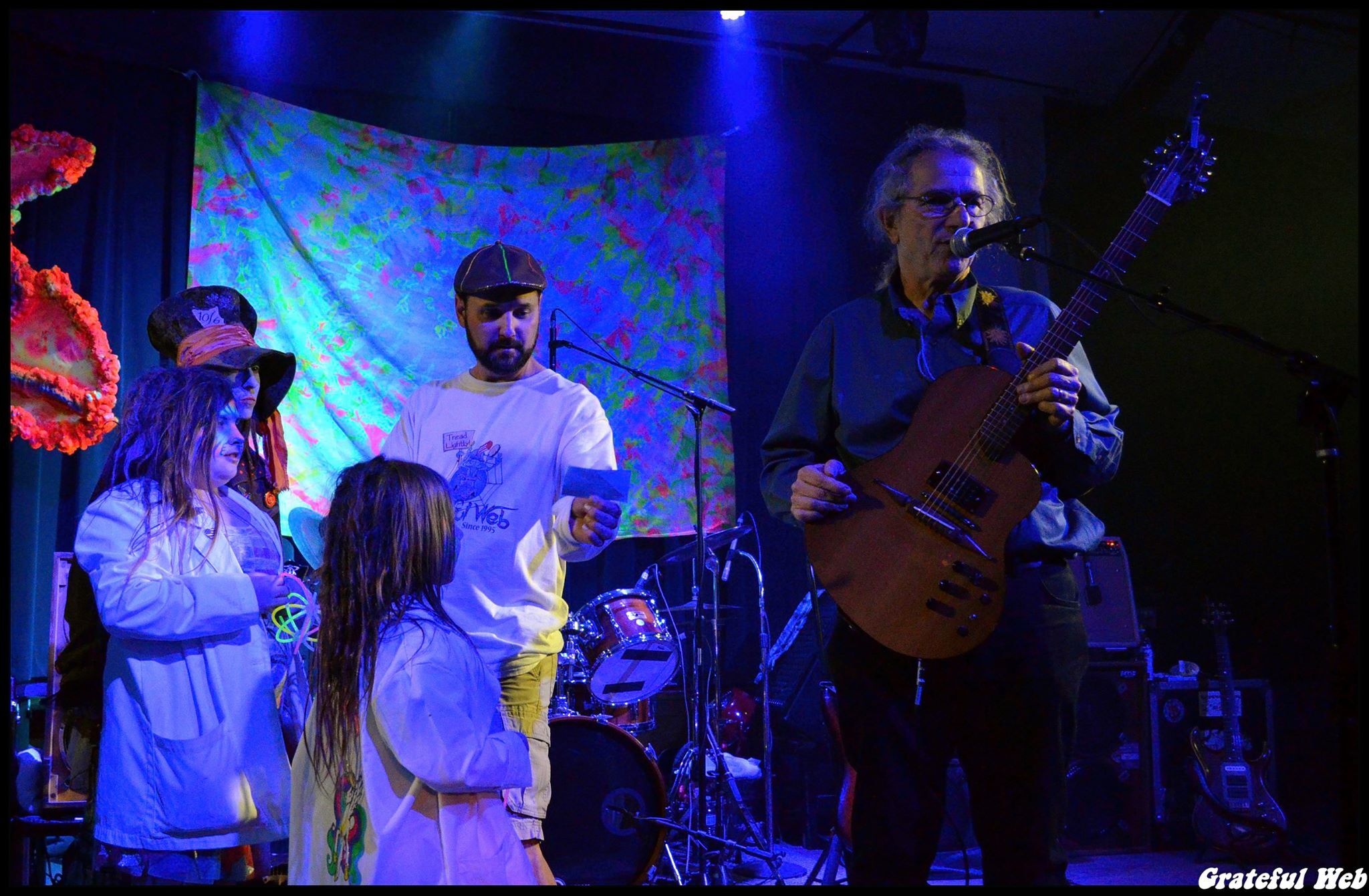
GW: I just got back from a show of theirs. It was an amazing show!
David: And Mickey, he’s just bringing Planet Drum back out. These guys—there’s no moss growing on these fuckers.
GW: [laughs] No, and Mickey did that show at the New York Natural History Museum, pulling out the Meyer sound on that a few years ago. “The Brain in the Box,” I called it, where they had Mickey wearing a brain cap that brought his brain activity to light and they were taking the sounds of the universe, and mind, and making it into music. He was working with a couple of scientists on that one.
David: Oh, he had a couple of different ones he worked with—Adam Gazzaley for awhile, and there was another guy in Pennsylvania. I can’t remember his name. The signification dude.
GW: Yeah. Mark Ballora at Penn State.
David: I met him. He actually came to Bear’s picnic one day, and came to one of my gigs and we got to hang out a little bit. And Mickey did that, the Mickey Hart Band tour a few years ago where he was wearing that brain cap.
GW: Yeah. That’s the one. I got to interview him for that Natural History show. That was a lot of fun chatting with him. So yeah, I mean who these guys are bringing in, like Jackie Greene, or George Porter Jr. coming in and playing with these guys. It’s just been wonderful. Keller had told me what he likes about it, is because everybody has the common repertoire of music it allows everyone to play with each other when they are at these music fests, or just want to mix and match players, they can.
David: Yeah. I had this practice for several years going where I would go into towns and hook up with local Dead bands and play with them. One of the things that makes this so amazing is we all know the repertoire, and we all know the syntax as it were of this musical conversation so we can get up on stage together, never having met one another before, and make something meaningful and enjoyable. Yeah. I had that experience so many times, and most of the bands I played with were really good. This music is alive. And so many of us that love it are keeping it going and the new things that can happen in that. Keller is absolutely right. It’s a genre of music just like bluegrass, dixieland, and gospel. There’s a core repertoire that we all know and it enables us to have meaningful conversations from scratch.
GW: The wonderful thing from the fan side is you go from children to eighty-year-olds. The crowd is so eclectic and broad spread, where you see young people talking to old people, different classes of people hanging out together.
David: It’s a family thing, and it has been for years. I remember in the early seventies, Time Magazine did an article about rock fandom and the way they characterized the Grateful Dead audience was, and I quote, “Male lonerism.” It stopped being that over the years because we all grew up and started families and brought our families with us to this thing, and we started bringing our grandchildren to this thing. I know at least a couple of families that are four generations deep of Deadheads. These festivals tend to be family-friendly because all these people want to come and do this and they have kids now. We’re not all insane, debauched acid-heads partying on. I mean, there’s plenty of that, too, obviously and people who like to rage all night and stuff. [laughter] But it’s also true that you want to come and enjoy the music and then go and cook dinner for your kids in a campsite and have a pleasant acoustic jam around a campfire with your neighbors and stuff. It’s a very family-friendly scene as long as you don’t object to having cannabis fumes in the air.
GW: And wide-open pupils. [laughter]
David: You say that like it’s a bad thing. [more laughter]
GW: No, no, no. It was great for me when I got to take my son to the Weir Wolf show in Chattanooga. And when we were walking out, he said, “It was a real honor to be in the presence of true masters of music.”
David: How old is your son?
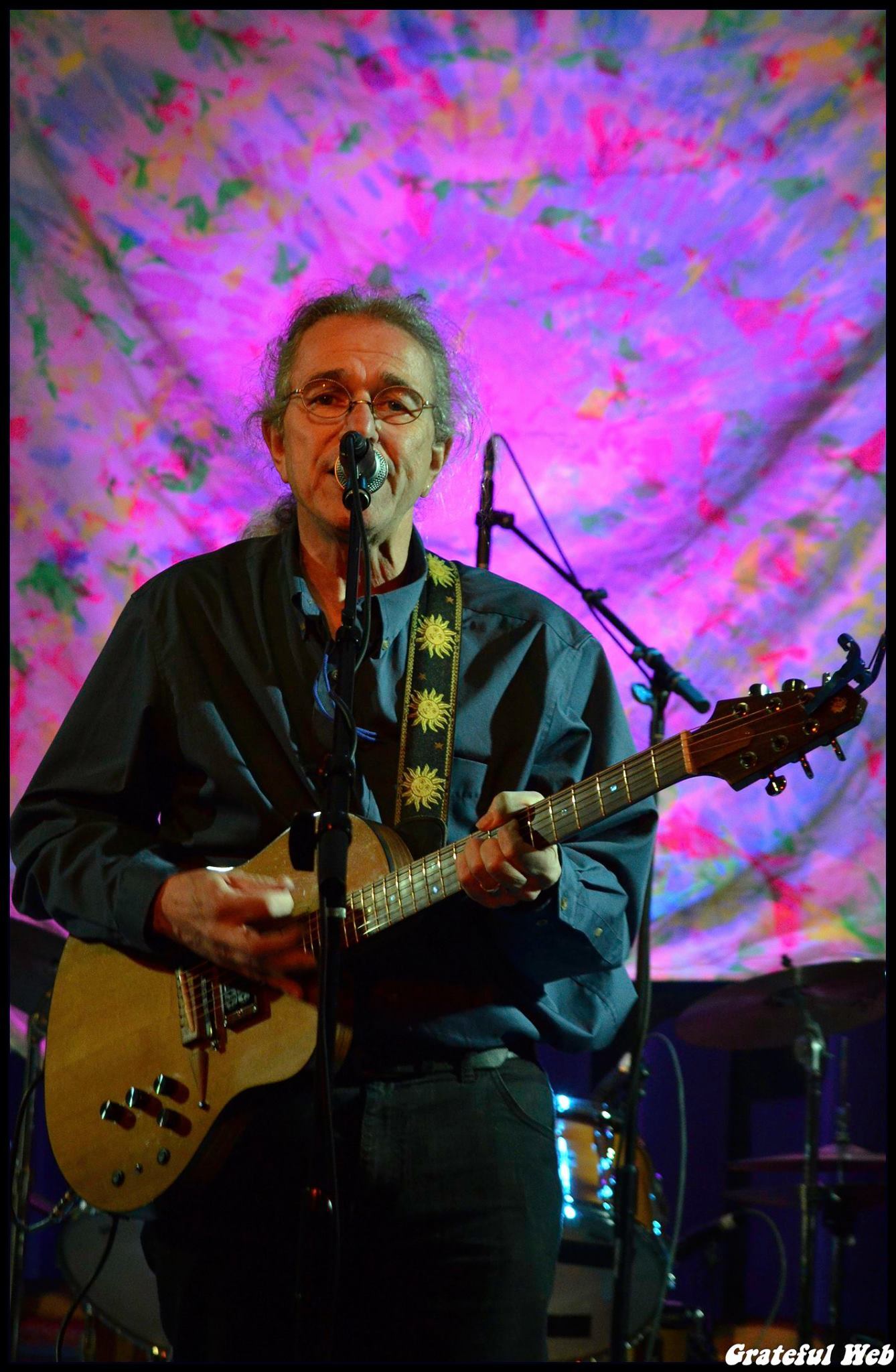
GW: Eighteen.
David: Old enough to recognize good music.
GW: Yeah. They hit him. He recognized the talent with no doubt. Even commented about other music paling in comparison after that.
David: That’s great. That’s just great.
GW: Speaking of all this youth and next generation Deadhead, a few years back I did an article on the Barton Hills Elementary School Choir with Gavin Tabone.
David: Yeah. Yeah.
GW: And couldn’t help but see your name pop up with those guys. What a great experience that must have been for you.
David: Oh, I love it. I love it. When I first heard about the Barton Hills Choir I was so intrigued, and it seemed like something I was really going to like, so I reached out to Gavin to interview him on the radio. It was lovely to have him. And much to my surprise, he invited me to perform with them and to record with them. I got to be part of one of those distributed recordings. On YouTube there’s a “Uncle John’s Band” where I play along with the choir.
GW: Yep. I know the one. Love it.
David: I got to do some live shows with them. We played the Brooklyn Bowl once, we did a live show outside of Wrigley before the Dead & Company show. We played in Austin before a Dead & Company show. I thoroughly love it. I love kids. My wife is a retired Schoolteacher. I love Gavin and what he’s doing with the music. So again, there’s no down side to it. You get to celebrate Grateful Dead music with kids and encourage them and enlighten them and inspire them. Life is an opportunity to serve your fellow human beings as much as anything else. The pleasure of doing that with the Barton Hills Choir is something I’ll never forget. Gavin thinks we might get to do it again sometime when it’s safe. I sure hope so. I would go work with him again anytime.
GW: I bumped into them through the Dead Covers Project on Dead.net and thought, “‘Wow!” So I ended up doing the same thing as you and contacted them for an interview article on him and his program. He was very conducive to that.
David: Of course.
GW: I think at the time you guys were getting ready to go do a show at a Wyoming music fest.
David: Yeah. That’s right. We played in Wyoming at a bluegrass festival.
GW: It sure is nice to have you out there spreading the word. I guess at this point you’re one of the fathers of the movement, huh?
David: I don’t know. [chuckles] I just try to find ways to be useful and support my fellow musicians and my fellow fans, and keep moving things forward.
GW: I know we sure appreciate everything you’ve been doing.
David: Well I appreciate it. I appreciate getting some attention out there in the world.
GW: And a special thank you for all your Dead Hour Shows. I’ve shared many an hour with you there. What are you up to, 1,800 shows now?
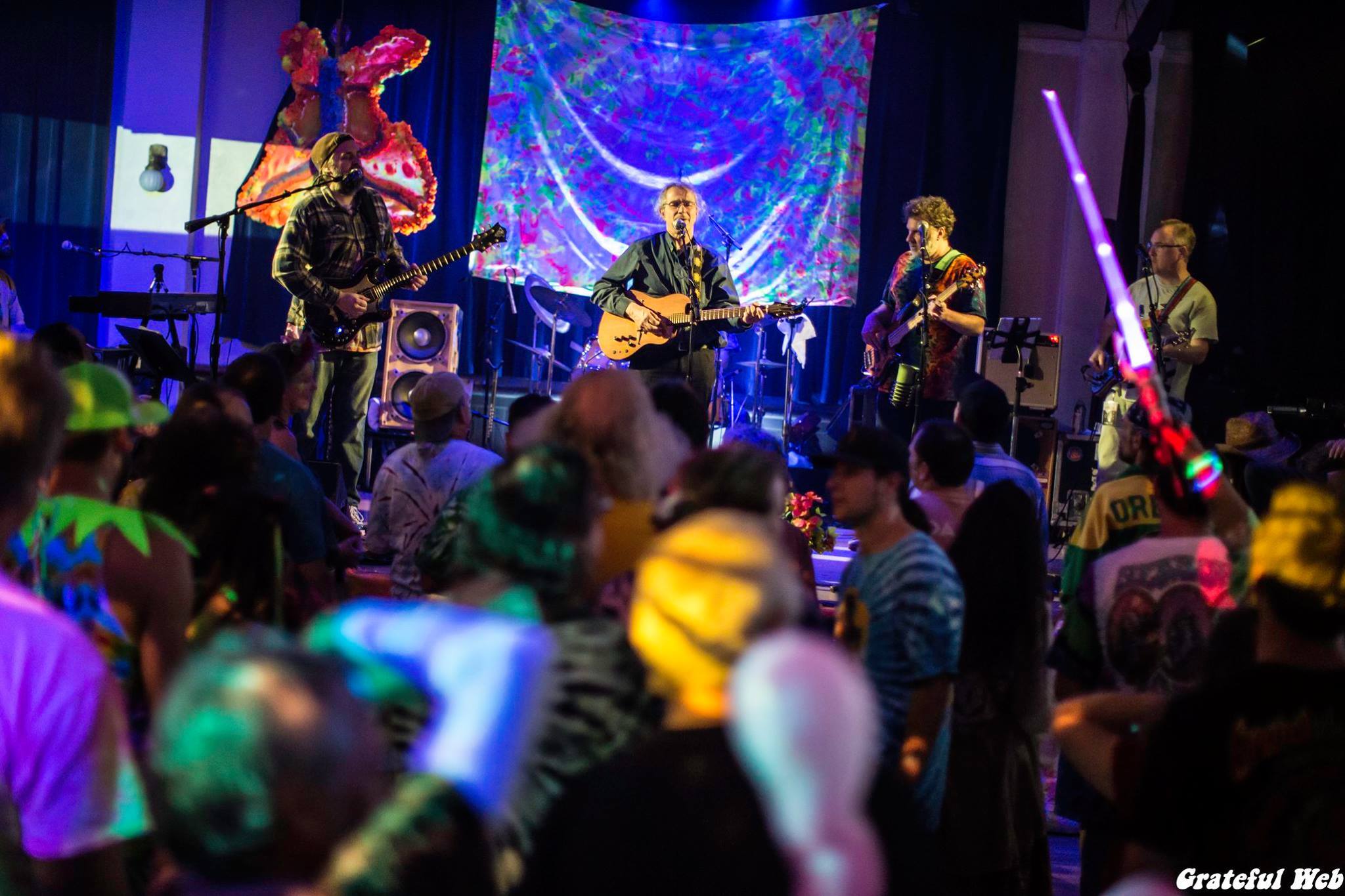
David: I just this morning finished producing number 1,756. There’s definitely more than that because I did fifty-five national shows before that numbering scheme began, and I did a few before that on KFOG. So yeah, I’m well into the eighteen-hundreds. And I somehow manage to crank out an hour of that every week for more than thirty-five years.
GW: That’s fantastic. I did a Dead show on Talkeetna Public Radio in Alaska for about three years.
David: Excellent.
GW: So I know the fun of doing that.
David: It is fun.
GW: Well, great. I’m really glad I got the chance to chat with you today. I’ve known your name for so long its such a great opportunity to get to visit with you. Thank you very much, David. I really appreciate it.
David: Thank you. Be well.
“Everybody’s dancin’ around the sun. Nobody’s finished, we ain’t even begun.”





